We remember IM Simon Webb (10-vi-1949 14-iii-2005)
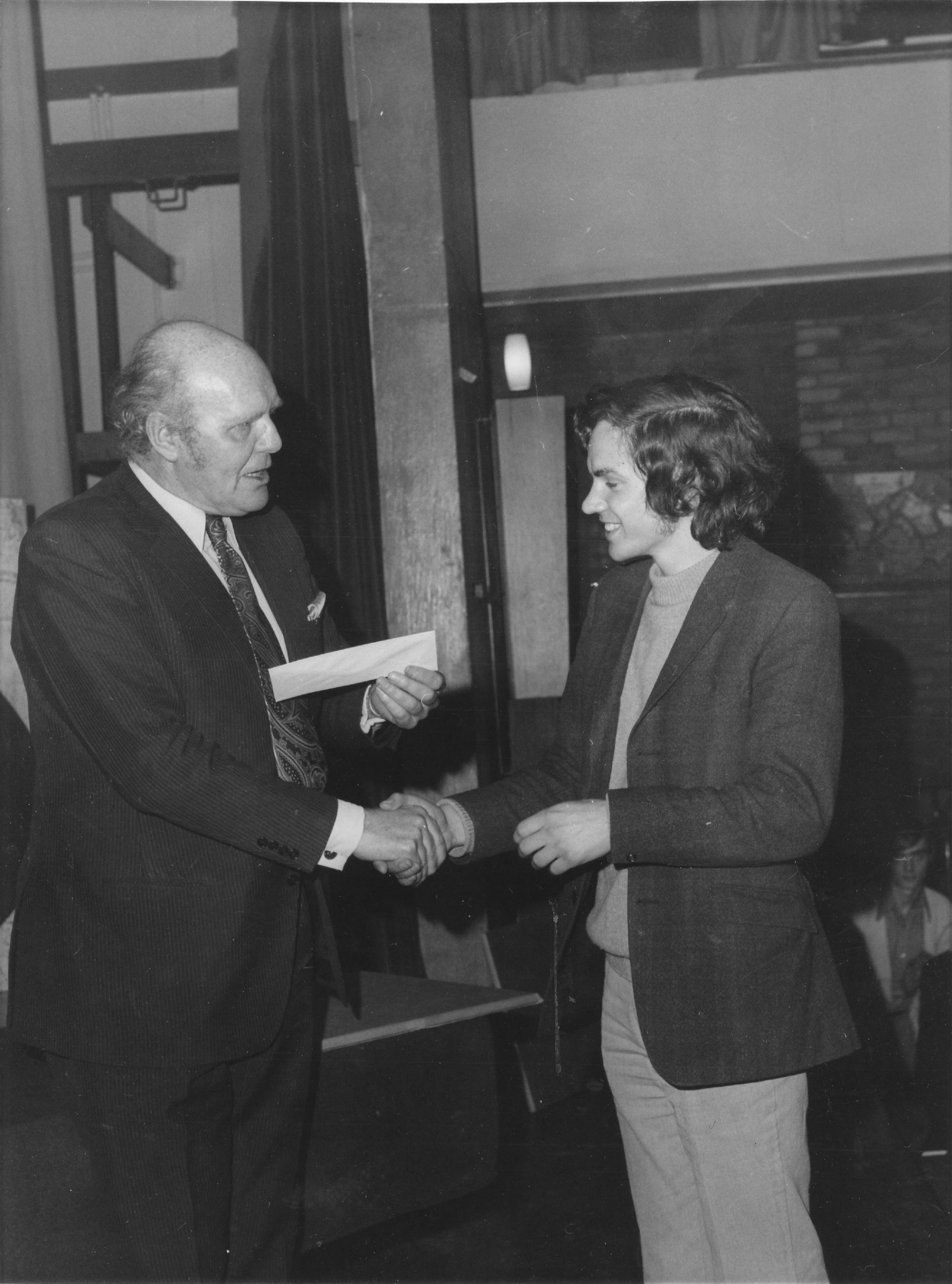
Simon became England’s fourth Correspondence Grandmaster in 1983 following Keith Richardson, Adrian Hollis and Peter Clarke.
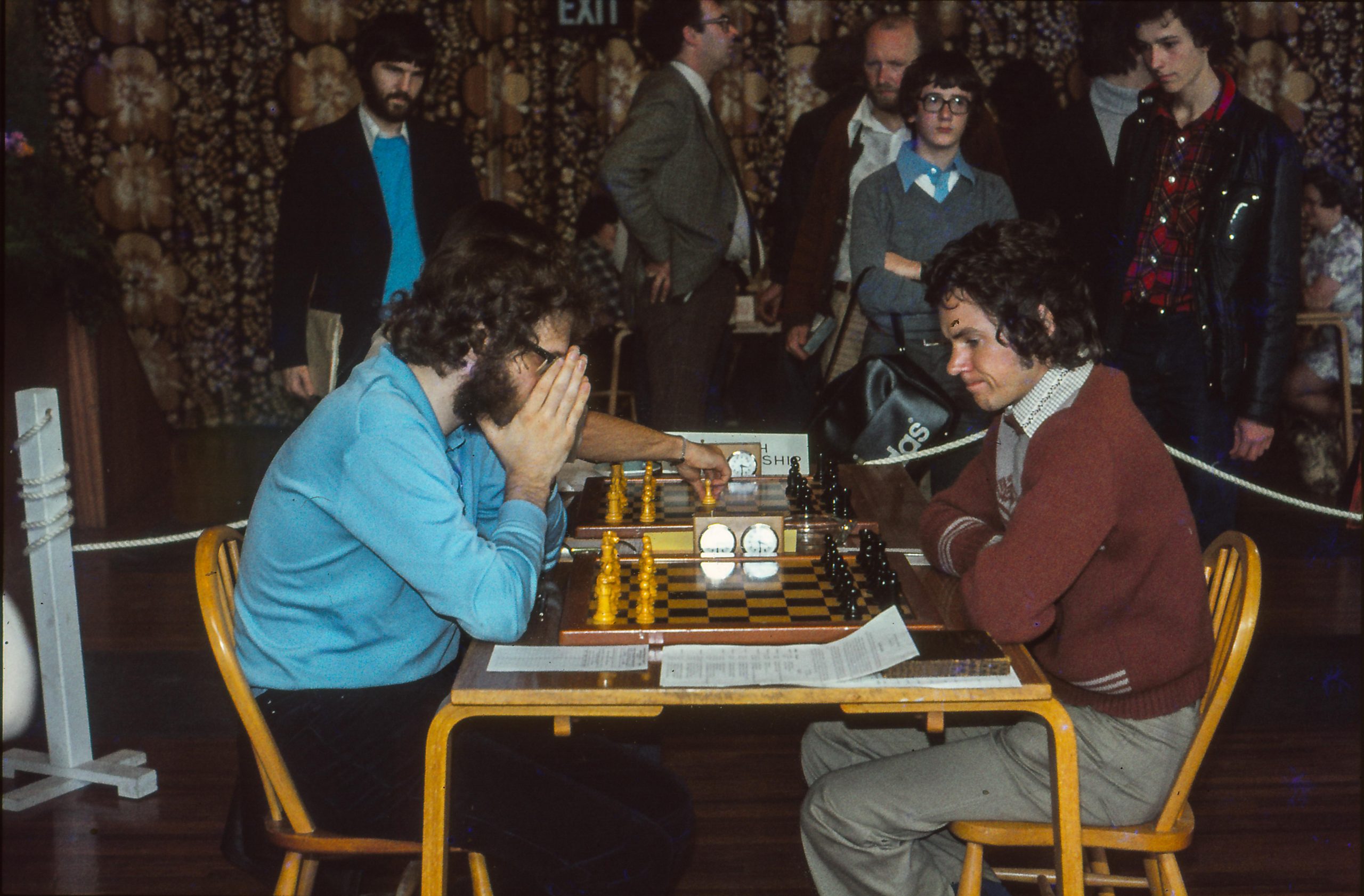
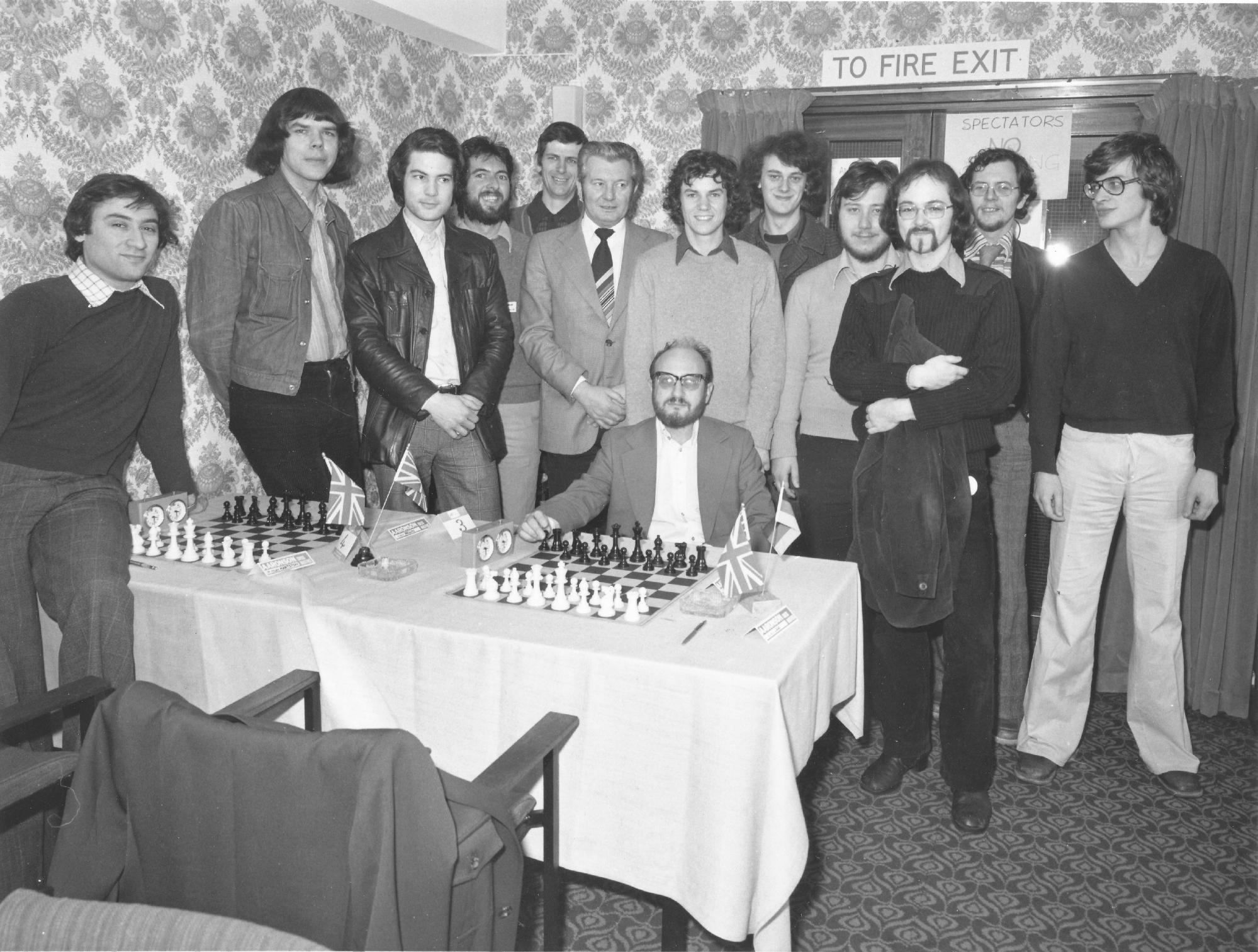

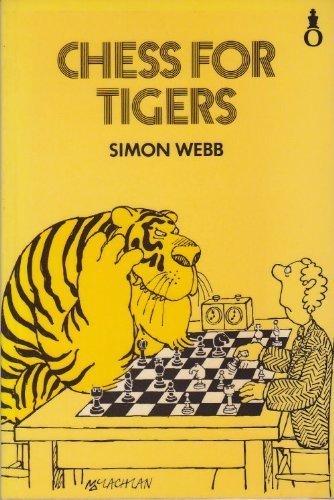
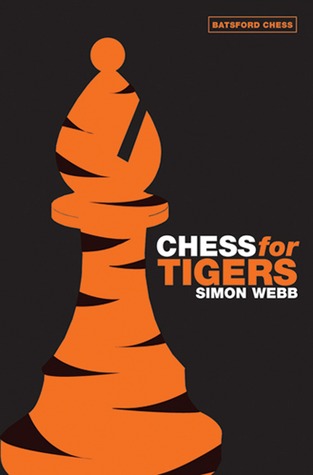
We remember IM Simon Webb (10-vi-1949 14-iii-2005)

Simon became England’s fourth Correspondence Grandmaster in 1983 following Keith Richardson, Adrian Hollis and Peter Clarke.





BCN wishes IM David Neil Laurence Levy happy birthday (14-iii-1945)
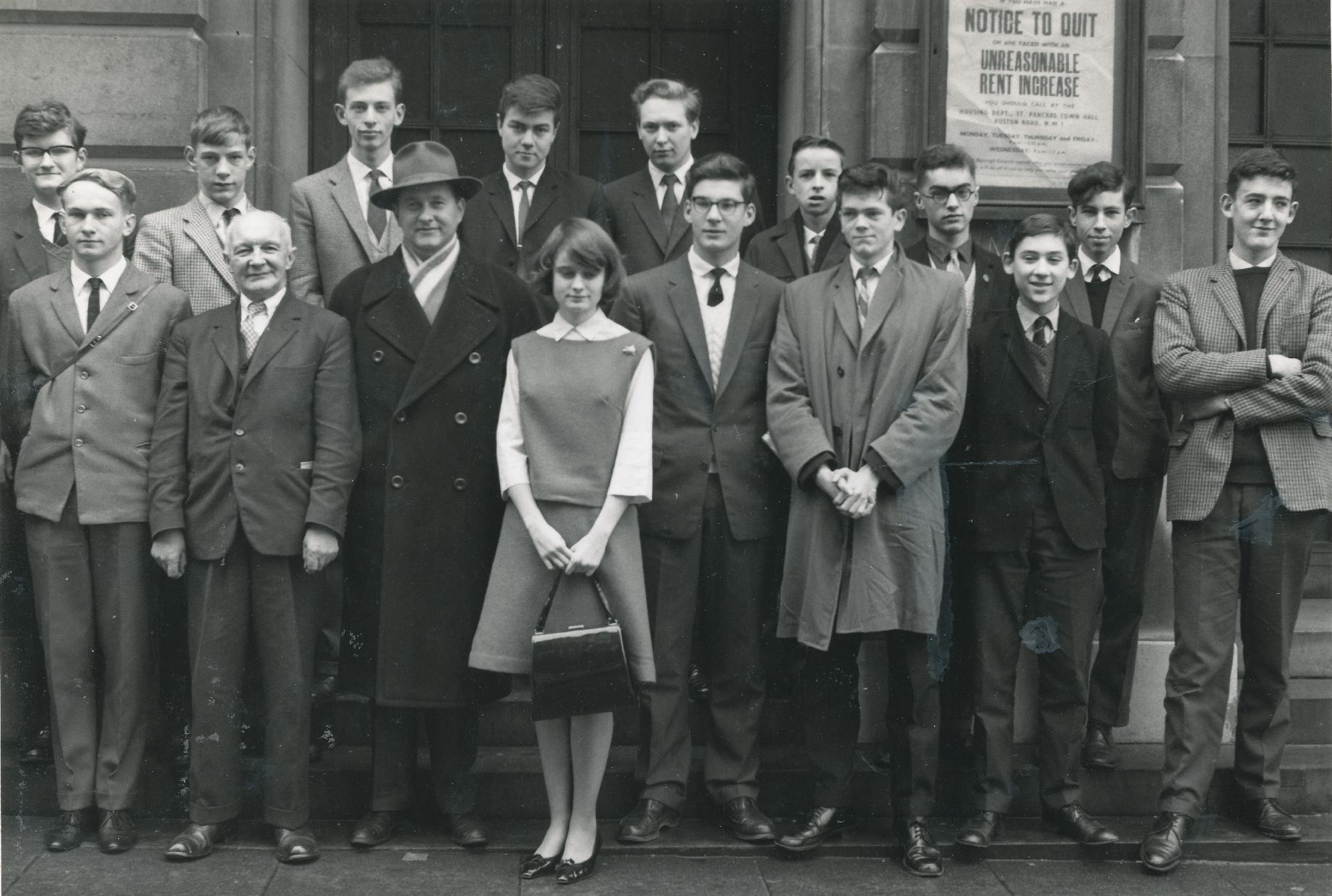
Here is his Wikipedia entry
Here is his entry from the chessprogramming wiki
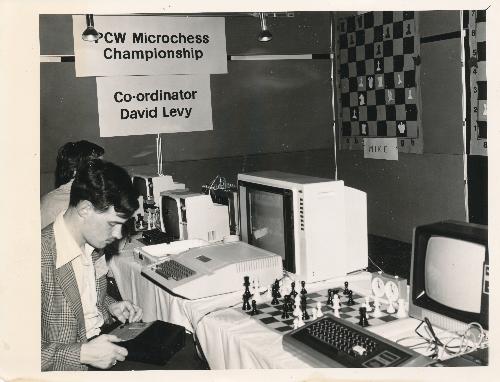
From chessgames.com :
“International Master and International Arbiter David Neil Lawrence Levy was born in London, England. Awarded the IM title in 1969, he won the Scottish Championship in 1968 and 1975 (=Stephen Swanson). He scored +6=5-7 at the top Olympiad board for Scotland in 1972. He is also a noted chess author and computer expert.
In 1968 he started a landmark wager of (initially) £500 with two Artificial Intelligence luminaries that no computer program would win a chess match against him within 10 years.
He won his bet in 1978 at the Canadian National Exhibition in Toronto by beating computer chess program CHESS 4.7 (Computer), which ran on a CDC Cyber 176 mainframe computer. These events led to a prize of $5,000 offered by Omni magazine to the authors of the first chess program to defeat Levy. The prize was not won until 1989, when IBM accepted the challenge with their chess computer Deep Thought (Computer).
History of Computer Chess: An AI perspective. http://video.google.com/videoplay?d… Wikipedia article: David Levy (chess player)”
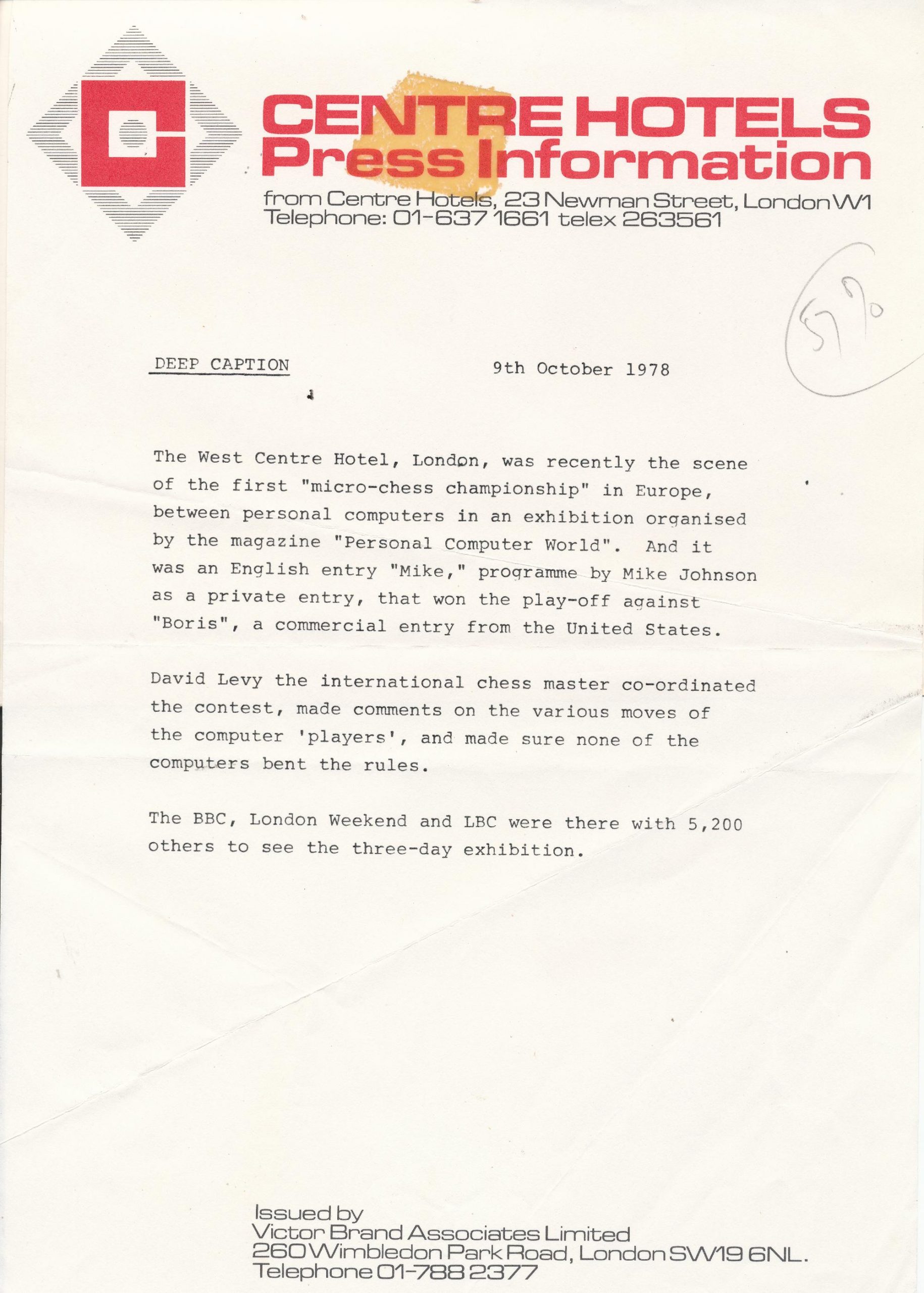
Here are his games from chessgames.com
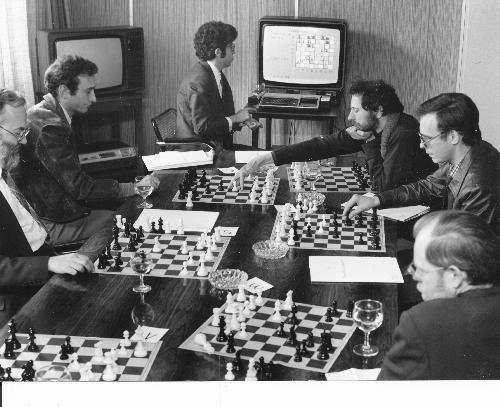
A famous letter from David to Raymond Keene.
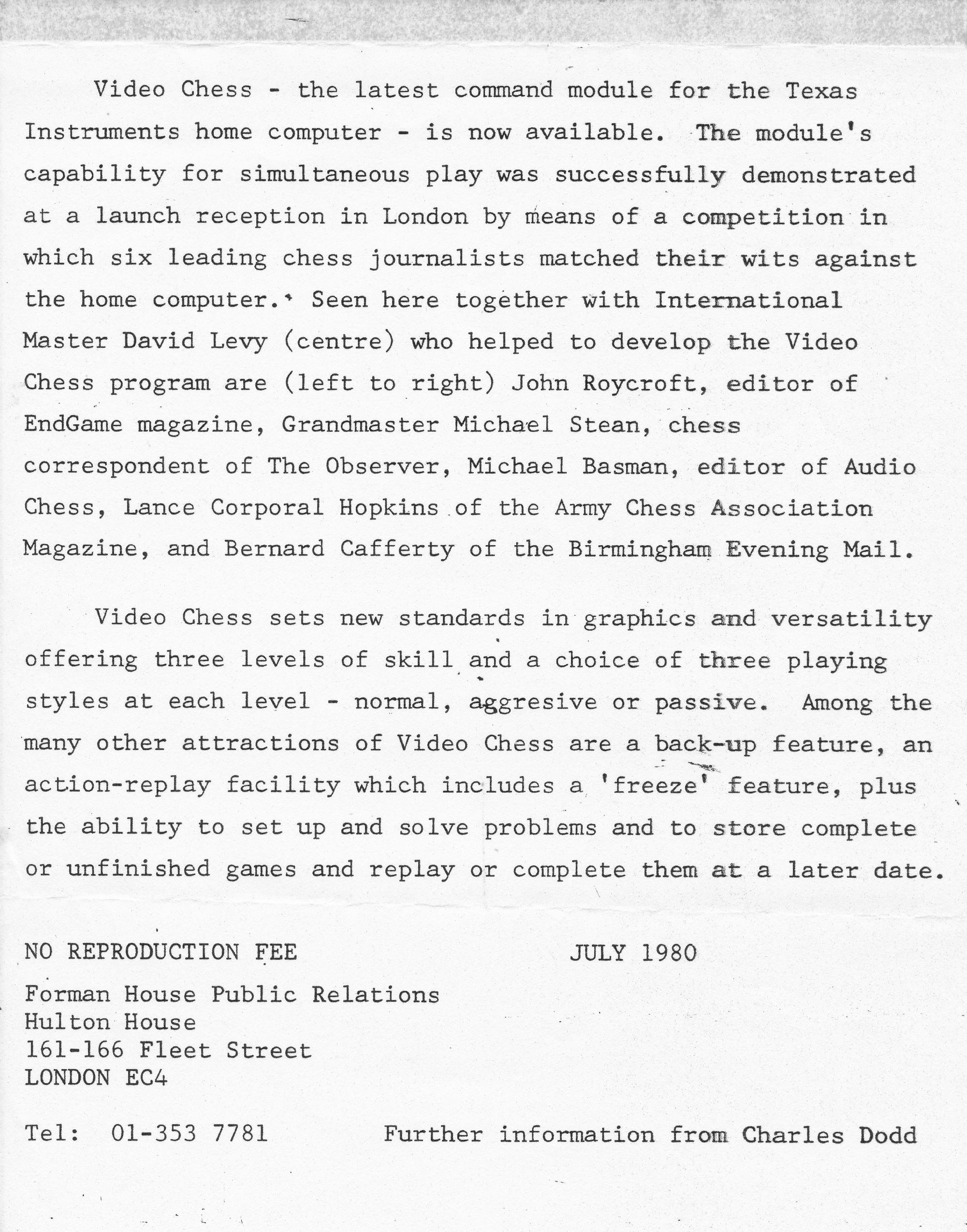
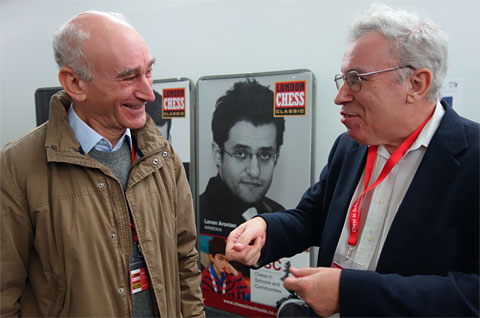
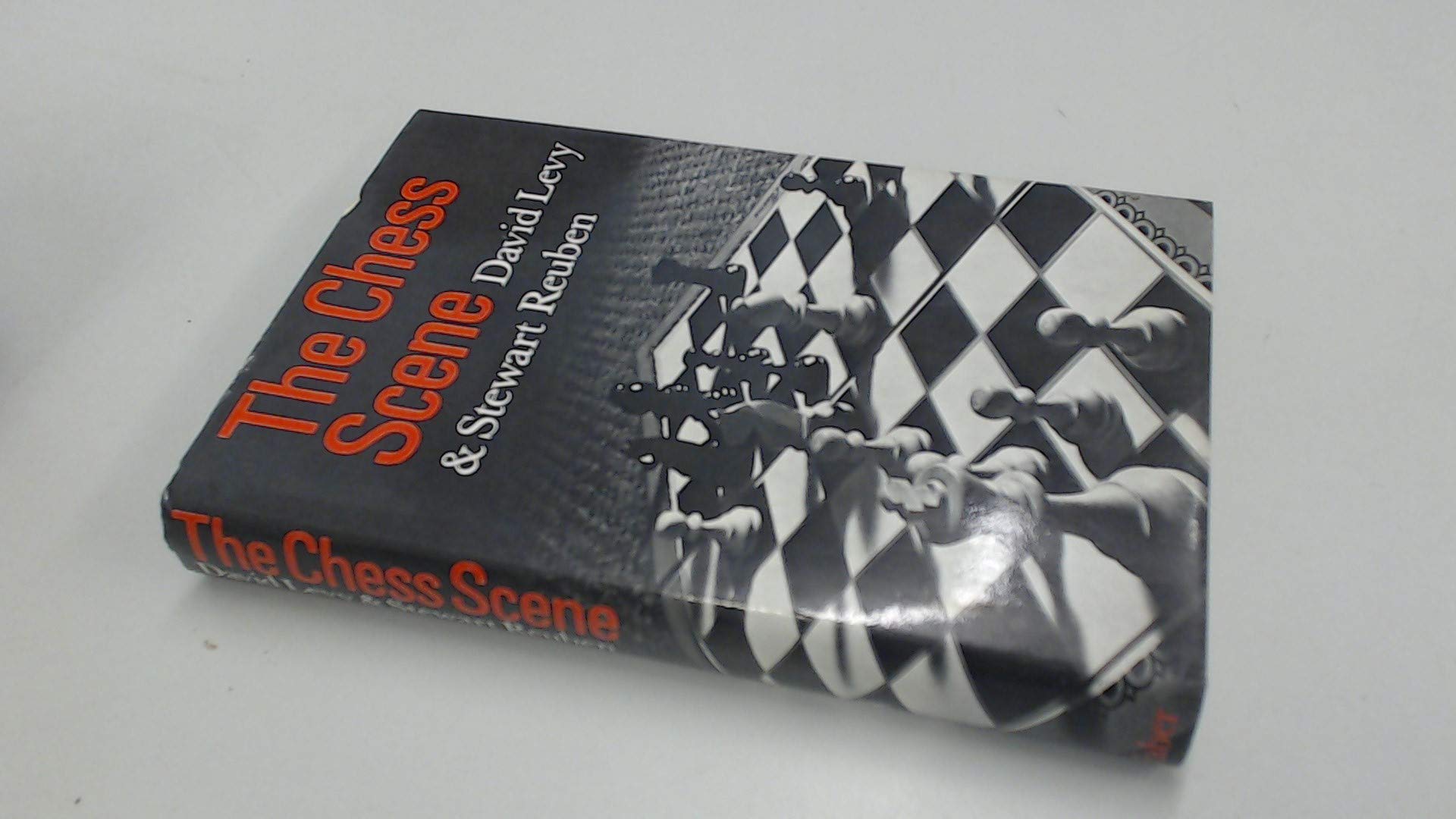
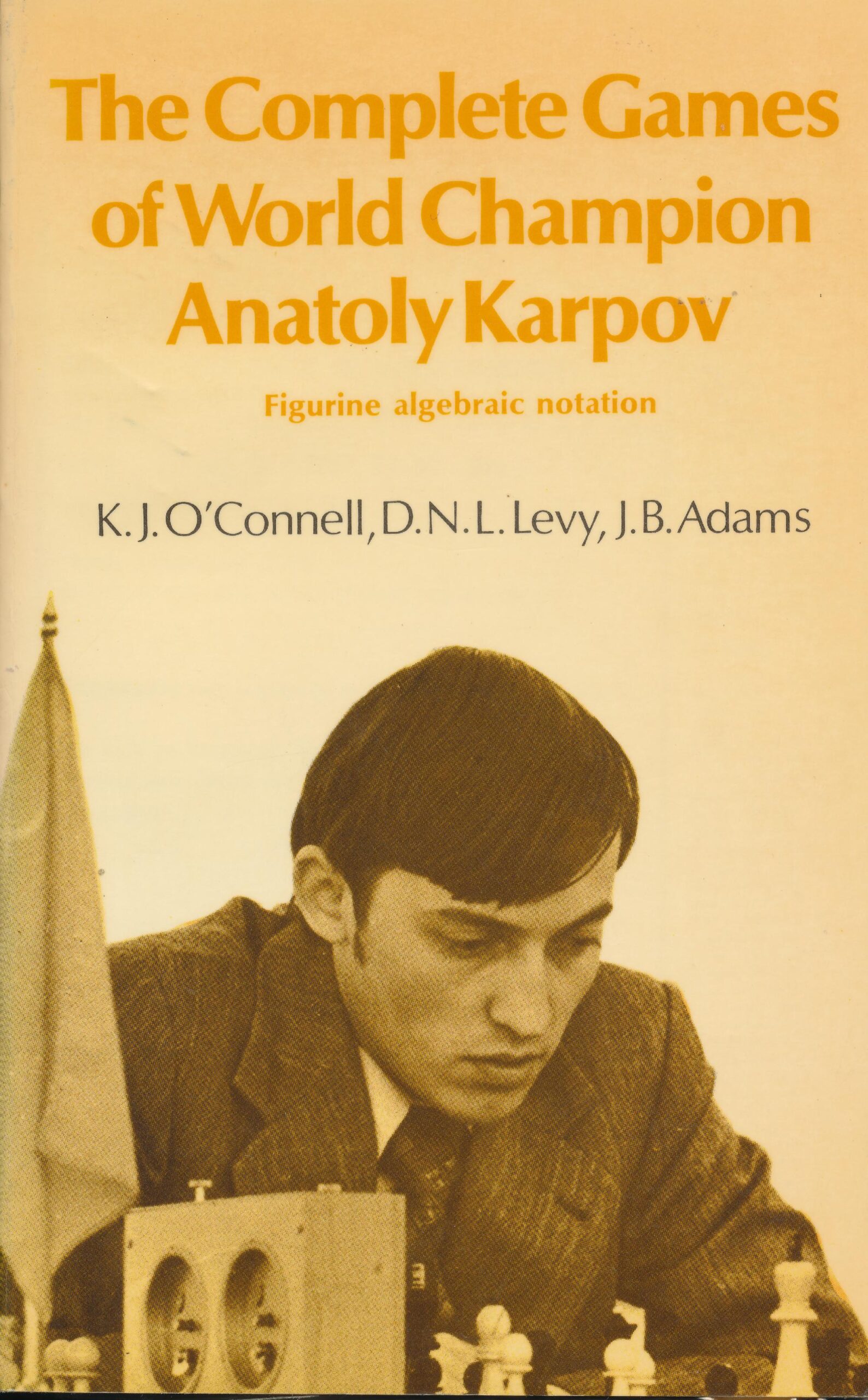
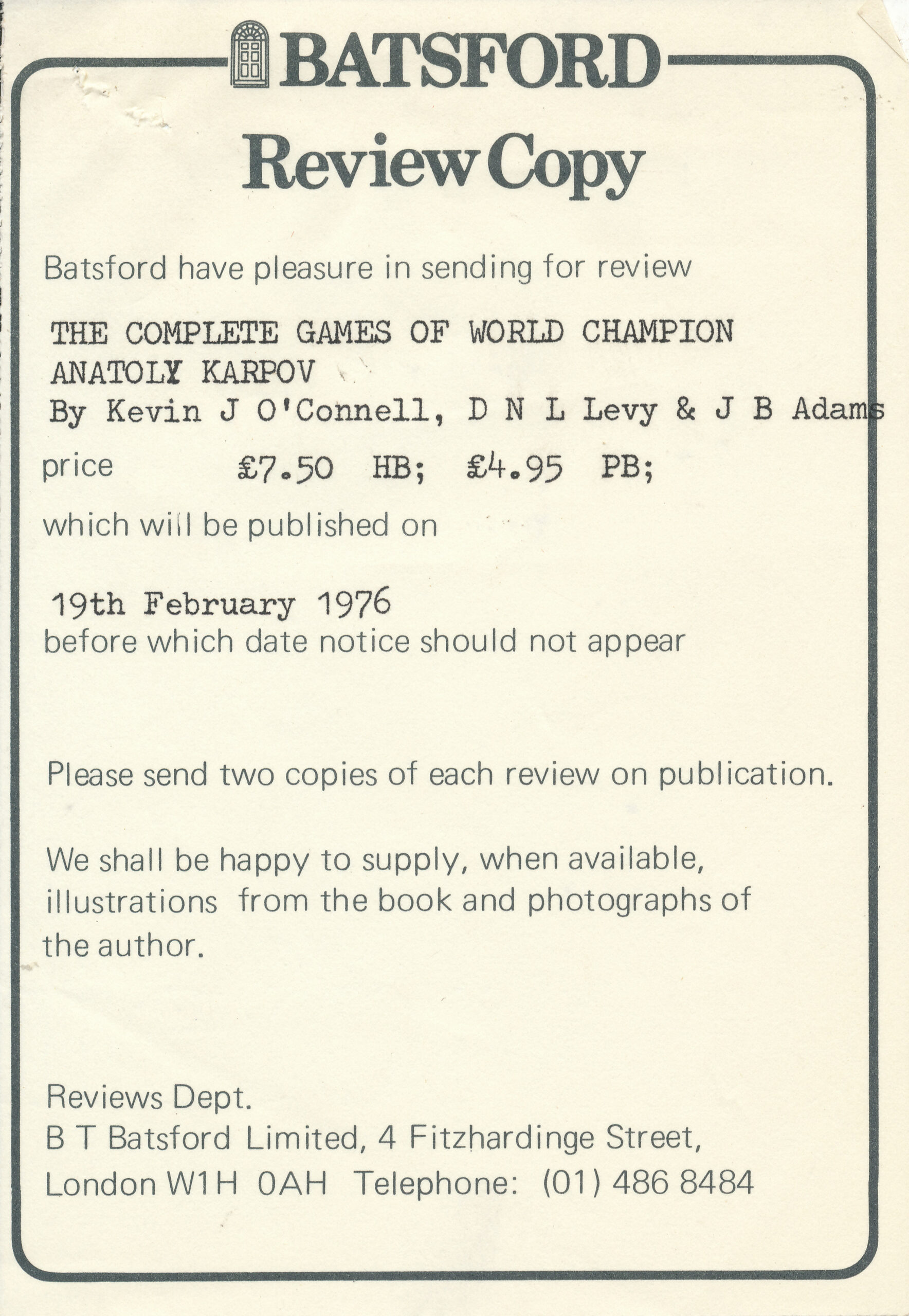
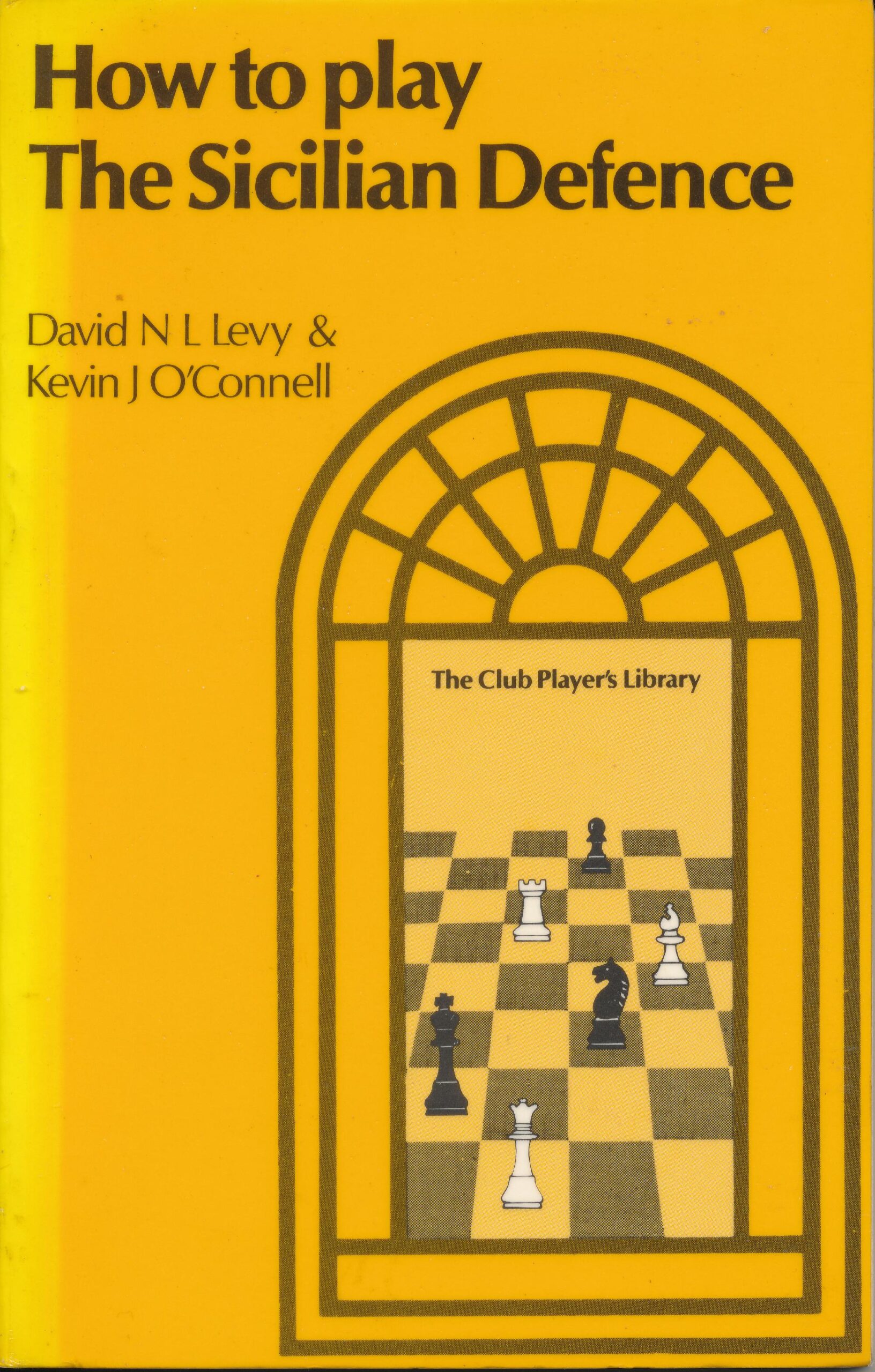
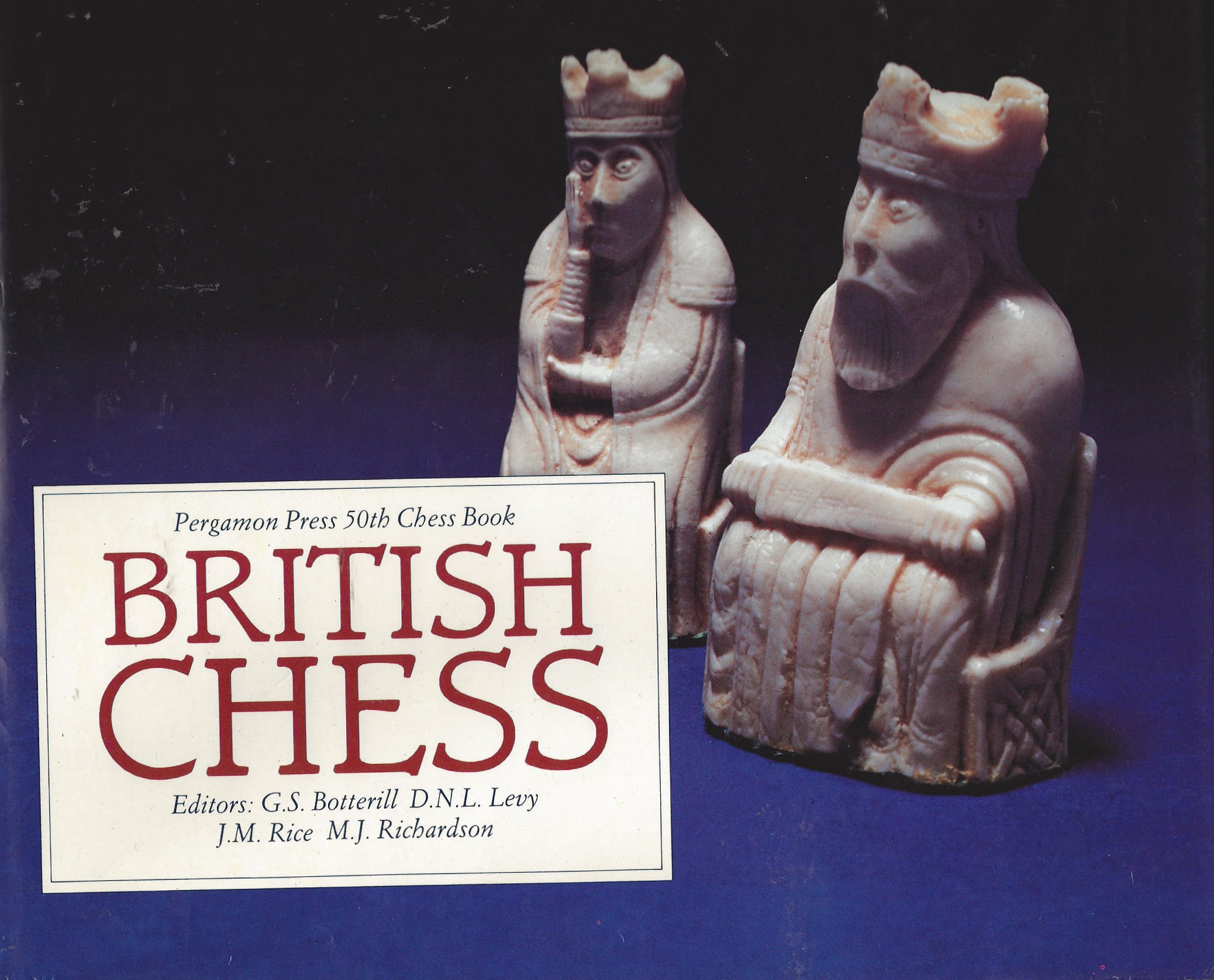
Best wishes to GM Dr. Jonathan Mestel on his birthday
A(ndrew) Jonathan Mestel was born in Cambridge on Wednesday, March 13th 1957. On this day the Presidential Palace in Havana was attacked with the object of killing Fulgencio Batista, the incumbent President.
Jonathan’s parents were Leon and Sylvia Louise Mestel (née Cole) who were married in 1951. Leon was a world-class astronomer and astrophysicist whose PhD supervisor was Fred Hoyle. Jonathan has a brother Ben and sisters Rosie and Leo.
Living in Cambridge he attended Newnham Croft Primary School and at the age six was taught chess by his father Leon. By the age of seven Jonathan was matching his father and not long afterwards he was beating him consistently. East Cheshire Chess Club was his first club and therefore the opportunity to play adults other than his father.
The Mestel family moved to Manchester in around 1967 and Jonathan attended Manchester Grammar School along with chess players Emmanuel Rayner and Ian Watson. Famously he grew a substantial beard and moustache and apparently “they (MGS) disapproved of it” resulting in a ban until the beard was removed. Jonathan duly obliged and returned to school but was sent home once more since he had retained the moustache: “They did not mention the moustache!” we are told. A further ban was resolved when the offending item was also removed.
Jonathan obtained a PhD in mathematics from Trinity College, Cambridge and the associated thesis was entitled “Magnetic Levitation of Liquid Metals”.
Jonathan is Professor of Applied Mathematics at Imperial College London. As well as teaching, his research interests include magnetohydrodynamics and biological fluid dynamics.
In the third quarter of 1982 Jonathan married Anna O’Donovan in Cambridge and they soon settled in the central Cambridge area where they remain to this day. They have a son, David. Sadly, it was reported in The Problemist that Anna passed had away on December 26th, 2022.
Bridge
Jonathan has represented England at bridge joining a group of English players such as Peter Lee and John Cox who also represented their country at bridge. Paul Littlewood, Paul Lamford and Natasha Regan are amongst many others who have combined bridge and chess to a high level . Here is Jonathan’s English Bridge Union page. He remains highly ranked in the bridge world to this day.
Jonathan noted:
I should mention that all my hair fell out for no obvious nor serious reason – neither my bidding nor partner’s dummies are responsible. Few would argue with that last statement.
His earliest recorded appearance in chess databases is from the Rhyl based British Under-14 championship in 1969 where he beat DA Winter. The eventual winner of that event was Jonathan Speelman. Jonathan M. recounts that he shared 3rd place with two others and that the prize allotted to the three of them was a whopping £2 10s to be divided equally. This amounted to 16s 8p each. Since the entry fee was 15s it meant he had cleared a notable profit of 1s and 8 pence!
The following year all British Championships competitors were sent to Coventry and Jonathan and Jonathan shared the Under-16 title whilst Bob Wade won the main event with 8/11.
1971 was no less successful and Jonathan travelled to the location of England’s Eiffel Tower (Blackpool) returning home with the British Under-18 title. Jonathan mentioned that he should have entered the Under-21 event instead.
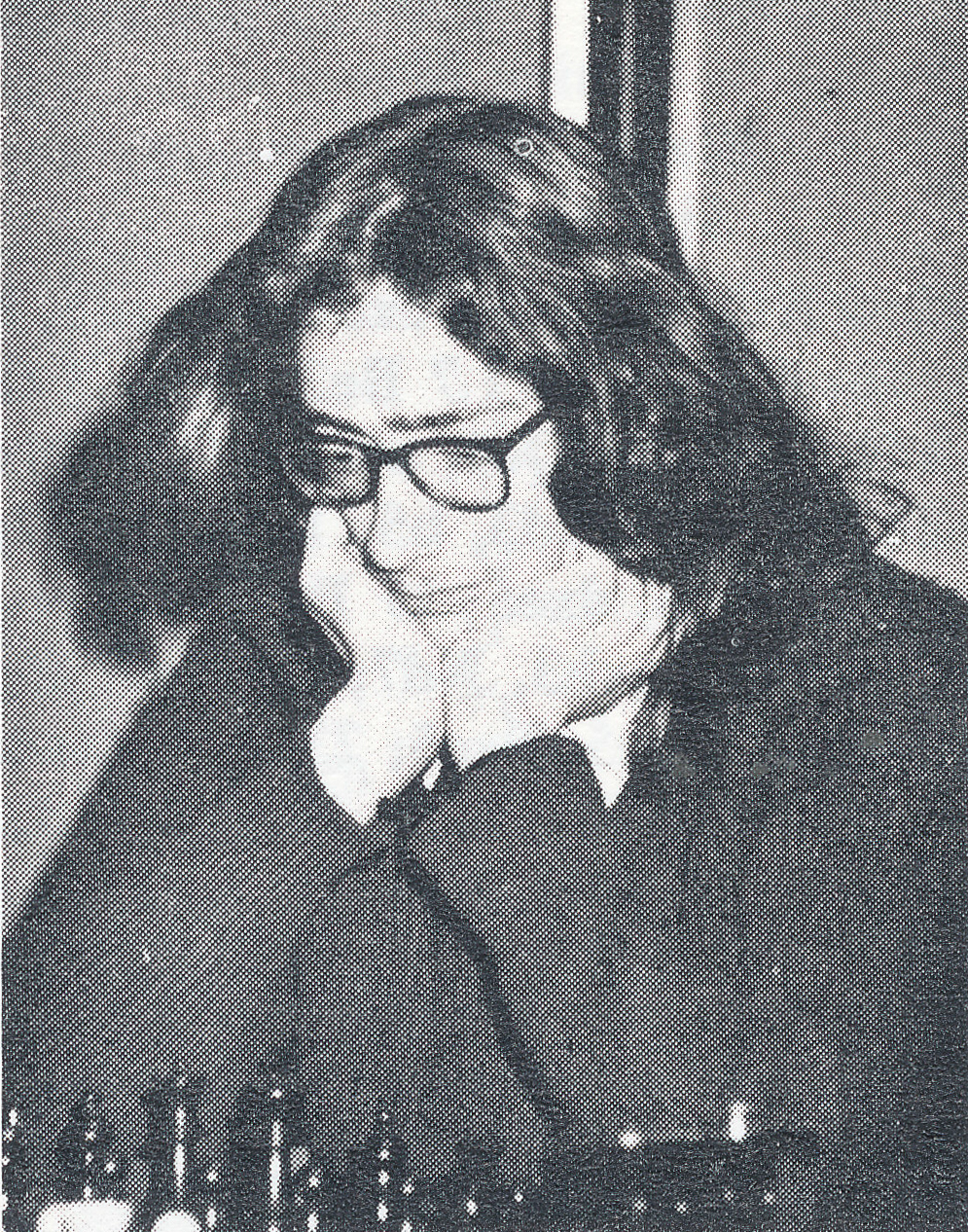
Brighton 1972 was Jonathan’s first appearance in the “main event” having broken the record for the youngest qualifier. This record was later broken by Richard Webb and then by Nigel Short. His final score was a creditable 6.5/11 giving him =5th overall aged 15 years and seven months. In 1972 this was an incredible achievement. Regrettably, these days achievements such as this appear to pass unreported.
At Eastbourne 1973 he was =7th with possibly the best hair cut of anyone:
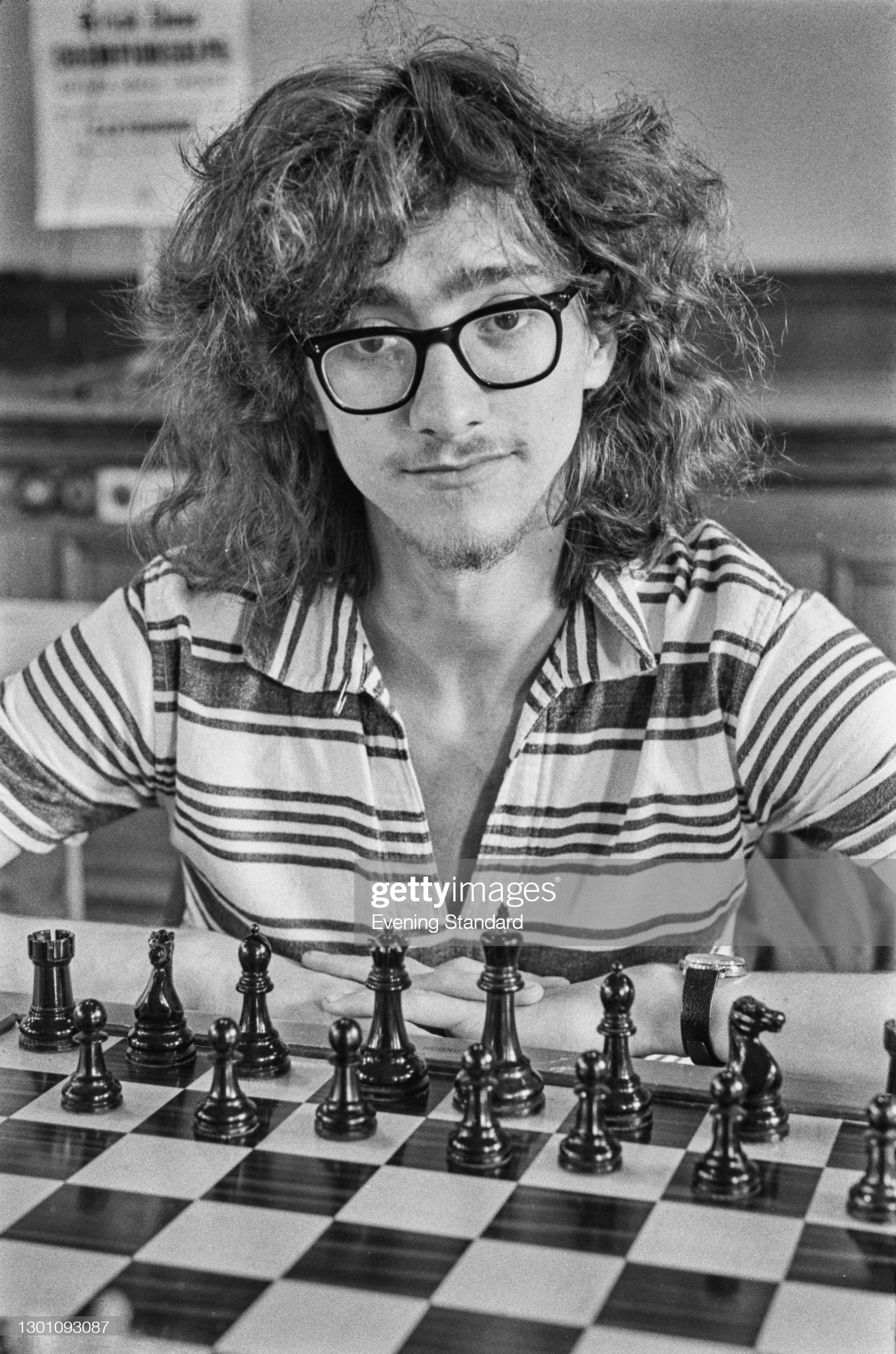
1974 was a breakthrough year internationally as Jonathan won the (unofficial) World Cadet Championship in Pont Sainte Maxence in southern France. The following year IM David Goodman followed up by winning the same title.
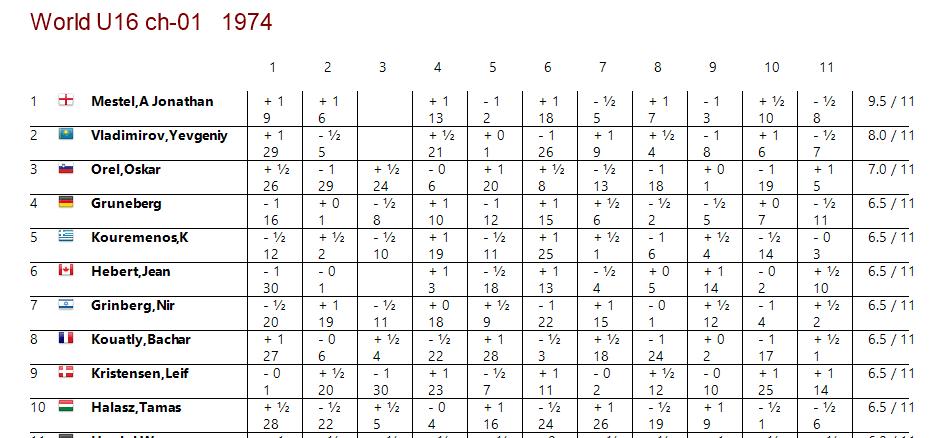
Interestingly travel arrangements for the above event were not so smooth as was the crossing of the English Channel. The hovercraft broke down; Jonathan arrived much later than anticipated and unable to find civilised accommodation leading to an Orwellian style “Down and Out in Paris” sleeping arrangement in a Paris gutter.
At Clacton 1974 Jonathan was one of seven who finished on 7/11, the title going to George Botterill after an all-play-all play-off in Wales.
1975 started well with a bronze medal in Tjentiste (former Yugoslavia now Bosnia Herzegovina) for the World Junior Championship (happening at the same as the British in Morecambe preventing a 1975 British Championship appearance).

1976 brought further success at Portland School, Edgbaston with a first place scoring 8/10 and an IM norm in the Birmingham International tournament:
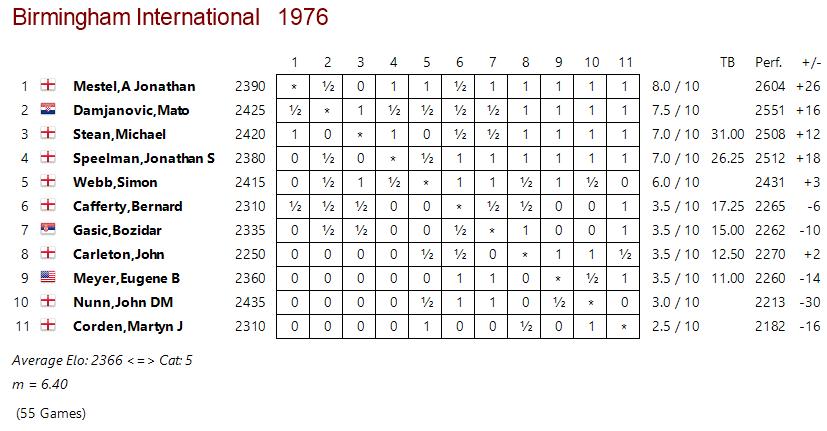
and here is a sparkling game from the 1976 Robert Silk Fellowship Tournament:
Jonathan followed this at the Portsmouth 1976 British Championships with a splendid outright first place with 9.5/11 , the highest score since Malik Mir Sultan Khan in 1933. Also, nine consecutive wins from the starting gun was most definitely a record!
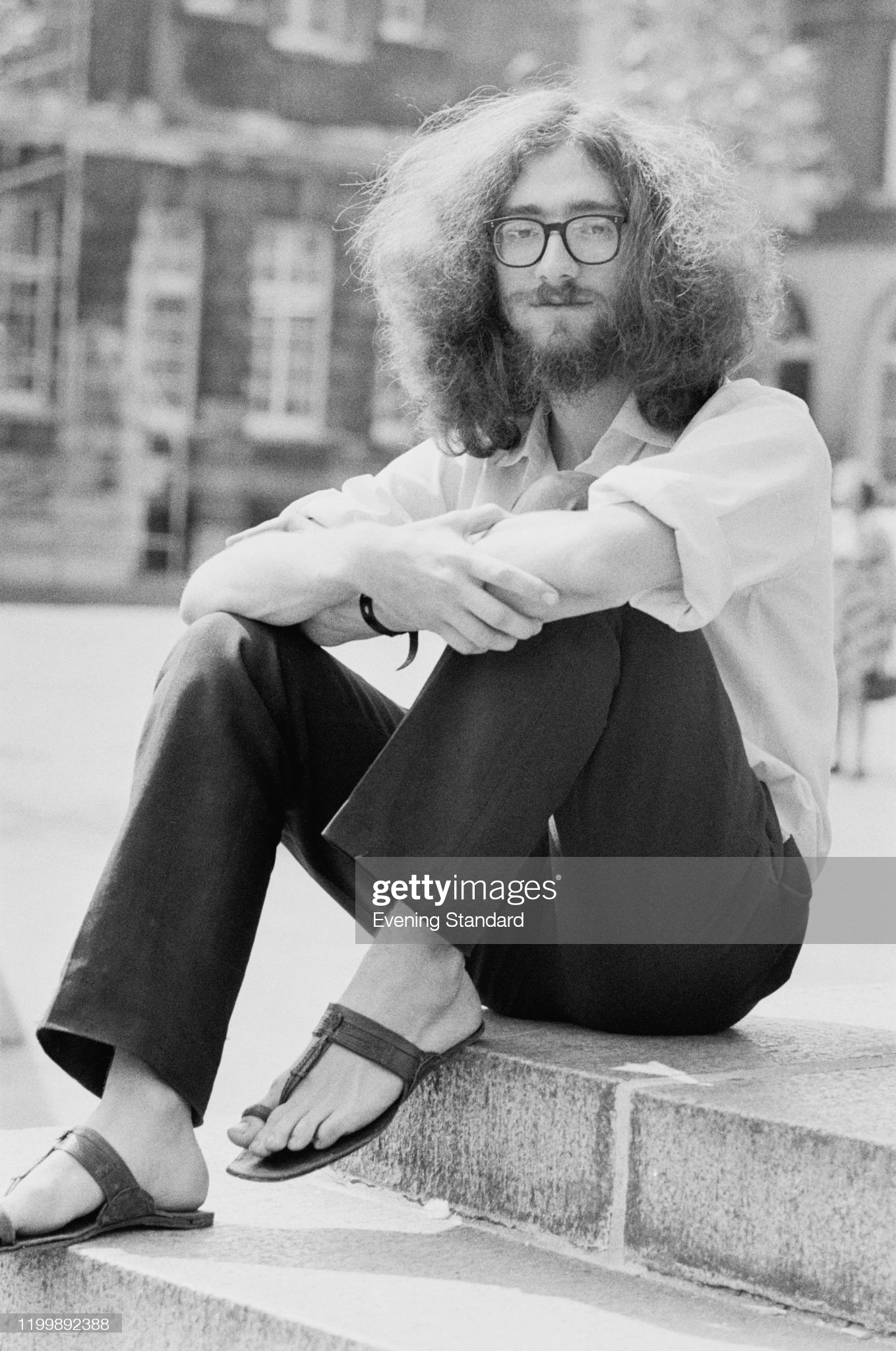
Leonard Barden assessed Mestel’s performance this in the Guardian:
“Jonathan Mestel’s reaction at Portsmouth to become British Champion at age 19, the youngest ever, and with a record series of nine wins, was characteristically low-key. He declined an interview with BBC’s World at One in favour of a continued sojourn on the beach, declined an invitation to the Chorley Congress (where the inducements for him to play were rumoured to include a chauffeured Rolls-Royce from station to town hall, and where the points might well have enabled him to overhaul the leader in the £1,000 Cutty Sark Grand Prix) in favour of a holiday in France, and even ‘declined’ the chance of a record total in the final round when he gifted a pawn in the opening to Whiteley in simple fashion”
Barden went on to praise Mestel as, along with Miles, one of the two young players ‘with genuine promise of ultimately reaching the world super-class.’
1977 led to the International Master title and in 1982 the Grandmaster title. In reality, the GM title should have been awarded two years earlier from Esberg 1979 but more on this FIDE blunder later.
In the 1979 Dataday Chess Diary Harry Golombek OBE wrote this:
“I wrote in last years diary that I doubted whether Jonathan would ever change his variability, adding ‘Probably there will always recur this rise to the heights and fall to lower levels.’
To some extent this is still true. But his play in 1977 and 1978 has shown a greater firmness of purpose and revealed more powers of endurance and stamina than I had realised he possessed earlier on. Thus, for instance, in the last round of the European Team Championship finals at Moscow in 1977, playing the black pieces against the West German master Kestler, he was the last to finish and he defeated his opponent after nearly 12 hours play and some 105 moves.
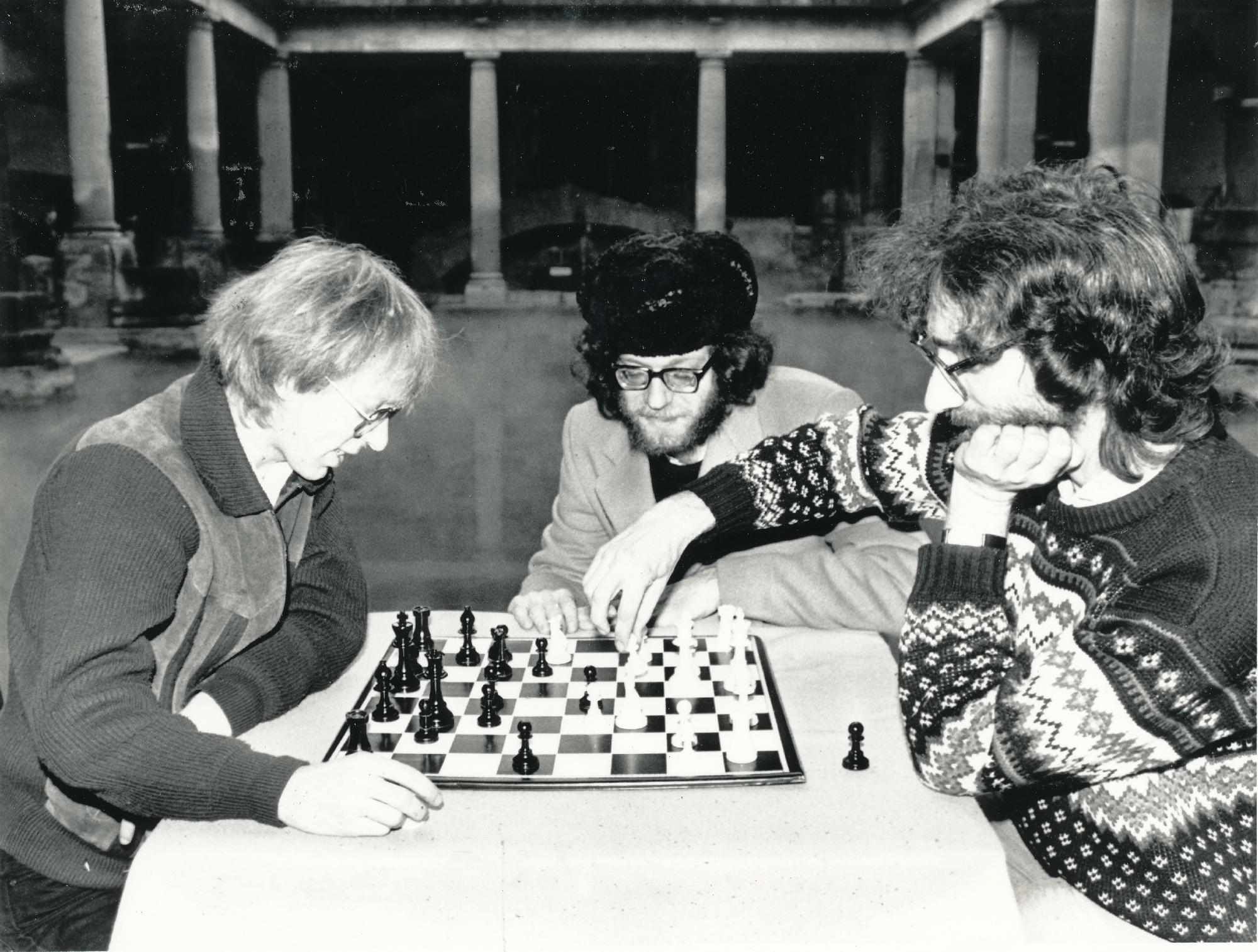
He is one of our players who is nearing the grandmaster title, both in play and, as it were, in figures. At the Lord John Cup Tournament in London, September 1977, he obtained the g.m. norm by coming equal 2nd with Quinteros and Stean below Hort. He did this with a score of 6 when 5.5 would have been sufficient for the norm.
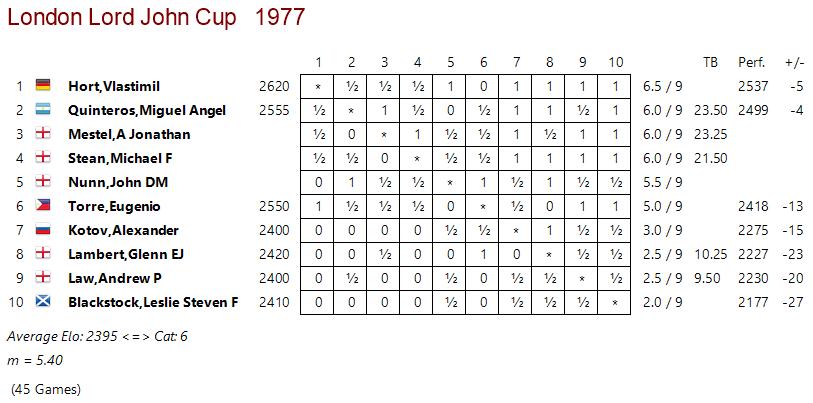
To my mind he is the ideal tournament competitor since he can always be relied upon to delight the onlooker with some fresh and original piece of chess. It is this talent which makes me think there is practically no limit to the heights he may attain as a player.
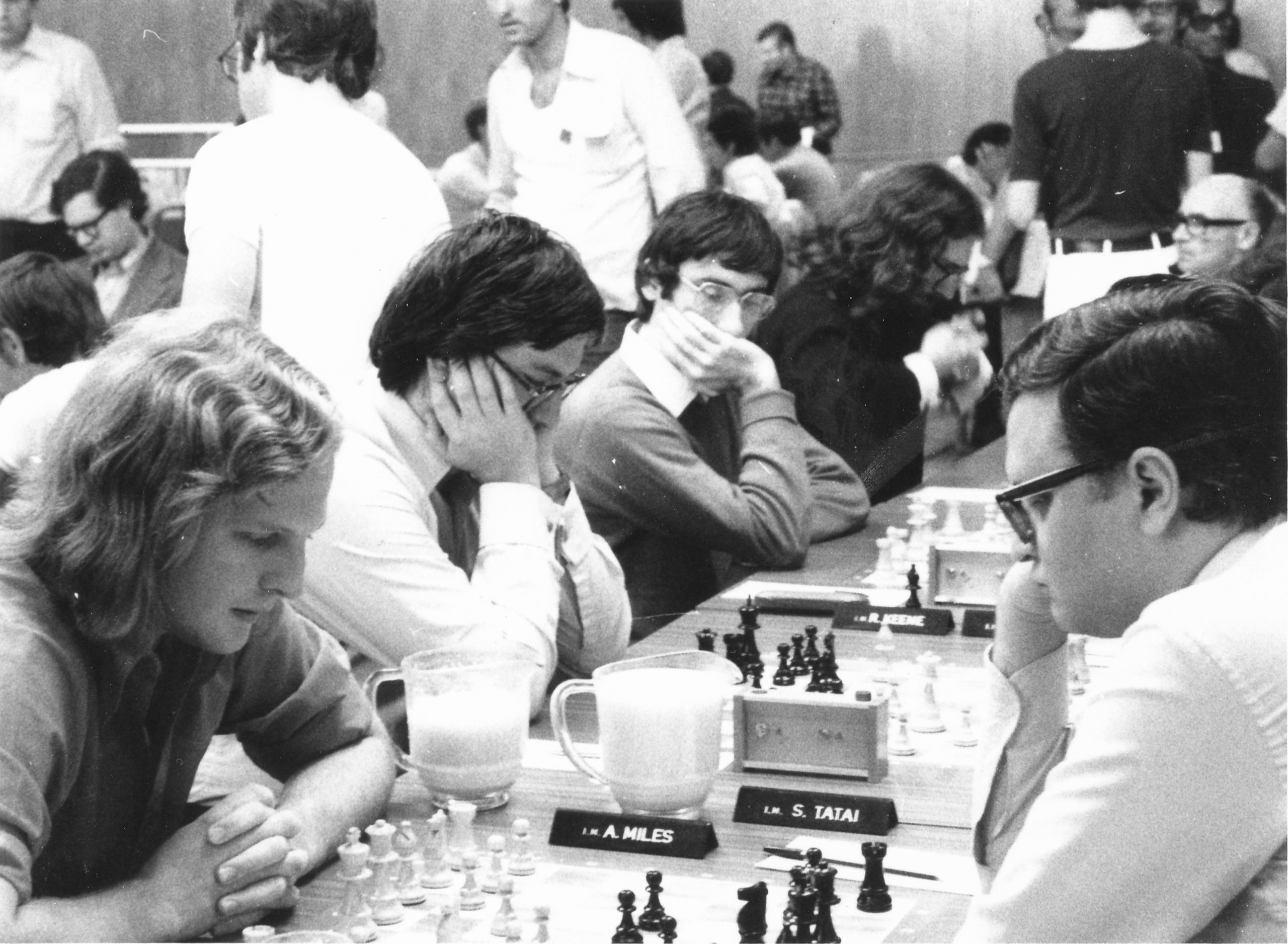
In the following game, played at the European Team Championships at Moscow 1977, Mestel gives signs of a new and mature sureness of purpose, whilst retaining all his incisive and ambitious qualities.
In 1978 Jonathan was part of the English team of Mestel, Speelman Taulbut, Goodman and Jonathan Kinlay that travelled to Mexico and won the World Under-26 Student Team Championships. This was a huge achievement as beating the USSR in a chess team event simply did not happen. It is not clear even that the Russian team were all bona fide students: some looking decidedly unstudent like!
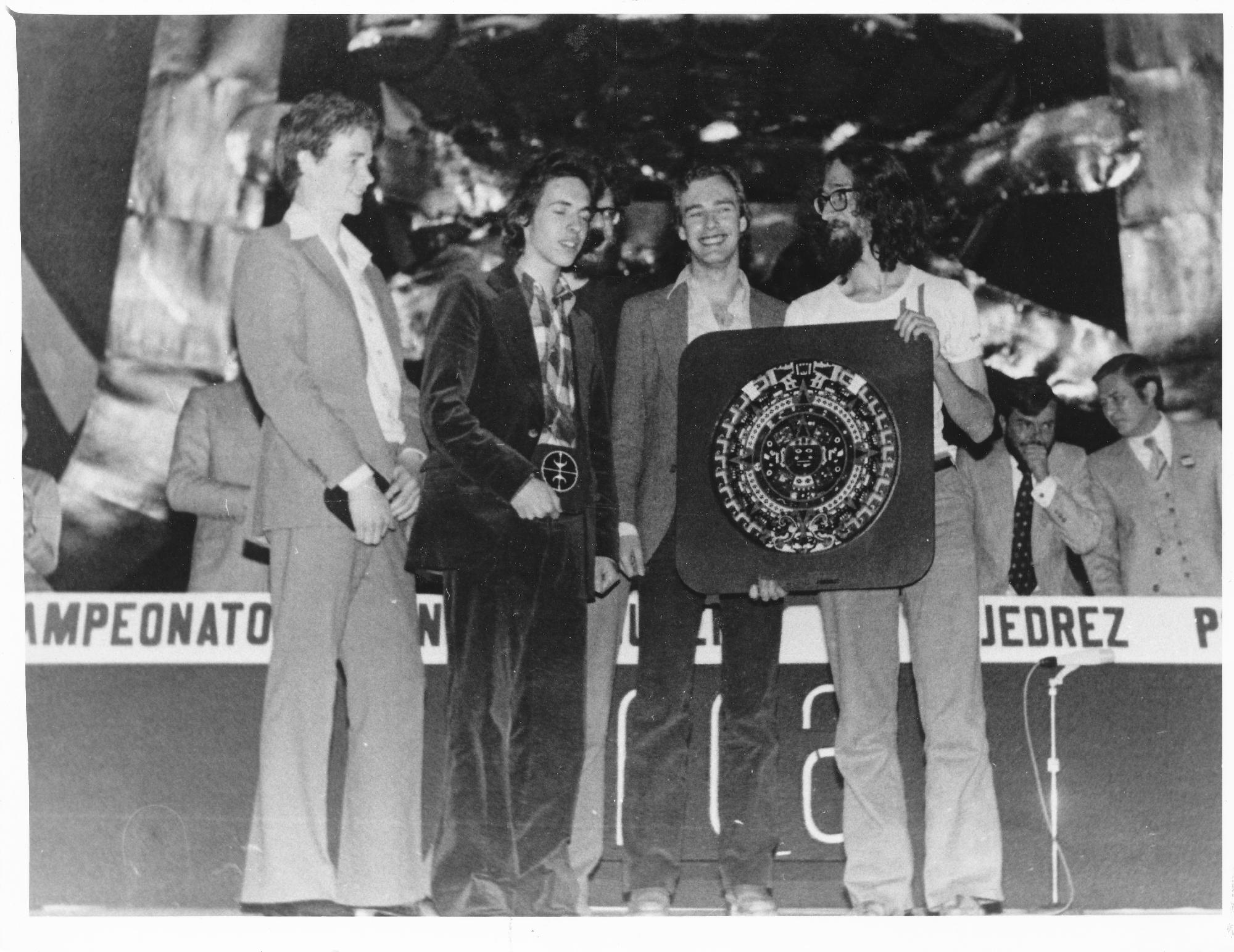
The splendid Aztec calendar trophy you can see Jonathan clutching above was taken back to England and generously donated to Bob Wade who, in turn, wrote in his will that it should be returned to Jonathan. To this day this wonderful trophy proudly lives with Jonathan and Anna in their house in Cambridge.
From British Chess (Pergamon Press, 1983), Botterill, Levy, Rice and Richardson we have this appreciation by George Botterill:
“The tournament at Esbjerg in 1979 was a bitter-sweet experience for Mestel. He won many fine games on the way to sharing first place with the hefty score of 9.5 out of 13.

But the real prize for which he was competing was the final norm that would have completed his qualification for the title of grandmaster. In the last round a draw would have been sufficient, but it was not day for peaceful negotiation since his adversary was also his nearest rival, Vadasz, who needed to win in order to tie for first place.
The nervous strain of having two aims in sight, first place and the coveted norm, told on Mestel who played rather beneath himself to lose. It was some consolation that the following victory over Finland’s leading player was hailed as the best game of the tournament.”
If the previous game gives you the idea that Mestel is especially skilled in the handling of an attacking phalanx of pawns, just take a look at this contribution to England’s bronze-medal result in the 1980 European Team Championship.
It is nice to be able to conclude that since the above was written Mestel’s chess status has changed and the story of his near miss at Esbjerg in 1979 turns out to have a happy ending. His GM title was ratified by the FIDE Congress at Lucerne 1982*.”
*It transpired that the initial norm calculation in 1979 was incorrect and it should have been awarded after all. Better late than never!
Jonathan recounts that on St. George’s Day (April 23rd) 1982 he had an important interview in the morning in Cambridge which went very well followed by round eight of the Phillips and Drew Masters at the GLC in London against Lajos Portisch. Here is that game:
So quite a good day all in all!
From The Oxford Companion to Chess (OUP, second edition, 1996) by Hooper & Whyld:
“English player, British Champion 1976, 1983 and 1988, World Under-18 Champion 1974, International] Grandmaster (1982). In the 1976 British Championship he made a record by winning 9 successive games. Mestel’s opportunities for master play are infrequent – he is a lecturer at a University; he scored perhaps his best at London 1977 when he was second ( +4=4—1) equal with Quinteros and Stean after Hort, and he has played several times in the English Olympiad team since 1976. Mestel also an outstanding solver of chess problems, has represented his country in world team solving championships, and was awarded the title of International Solving Master in 1986”
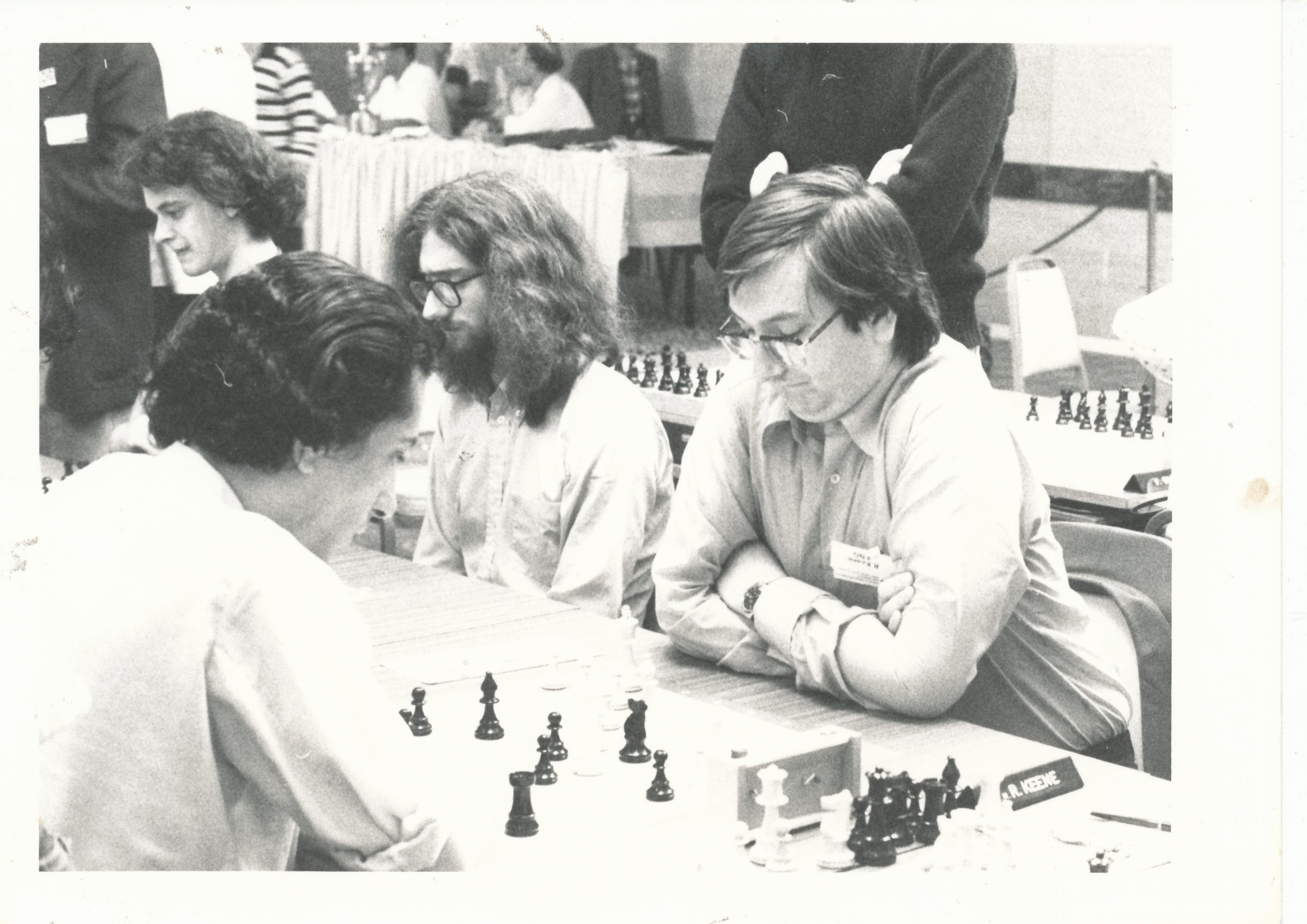
From The Encyclopaedia of Chess (Batsford, 1977), Harry Golombek wrote :
“British Master and British Champion 1976, who was born in Cambridge and packed into the three years 1974-6, in the period of time when he grew from seventeen to nineteen, more chess and more success than most people achieve in a long lifetime.
He first made his presence felt in the international field when he won the cadet championship at Pont Sainte–Maxene in France in 1974. This was an unofficial world under-18 championship and he confirmed this good impression by very nearly winning the British Championship in Clacton in the same year. He figured in a seven-way tie for first place but failed to win the play-off for the title.

The next he gained his first international master norm at the Birmingham international tournament where he finished equal second with Matera (USA) and Miles (England), a point below Matulovic of Yugoslavia whom he beat in their individual game.
He was little disappointing in the World Junior Championship at Tjentiste in Yugoslavia in 1975 in which he came third below the Russian Chekov and the US player Larry Christiansen. It was thought that, talented though he was, Mestel lacked stability and was too variable in his form to achieve the highest honours.
But the next year, 1976, was to show that was quite a false appreciation of his talents and character. First in April he won and international tournament which, if not as strong a the previous Birmingham, was still touch event to win ahead of the Yugoslav Grandmaster Damjanovic.
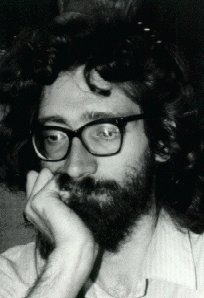
Then came a most remarkable achievement in the British Championship at Portsmouth where he won his first nine games in succession thereby winning the title and establishing a record for the British Championship with his run of victories.”
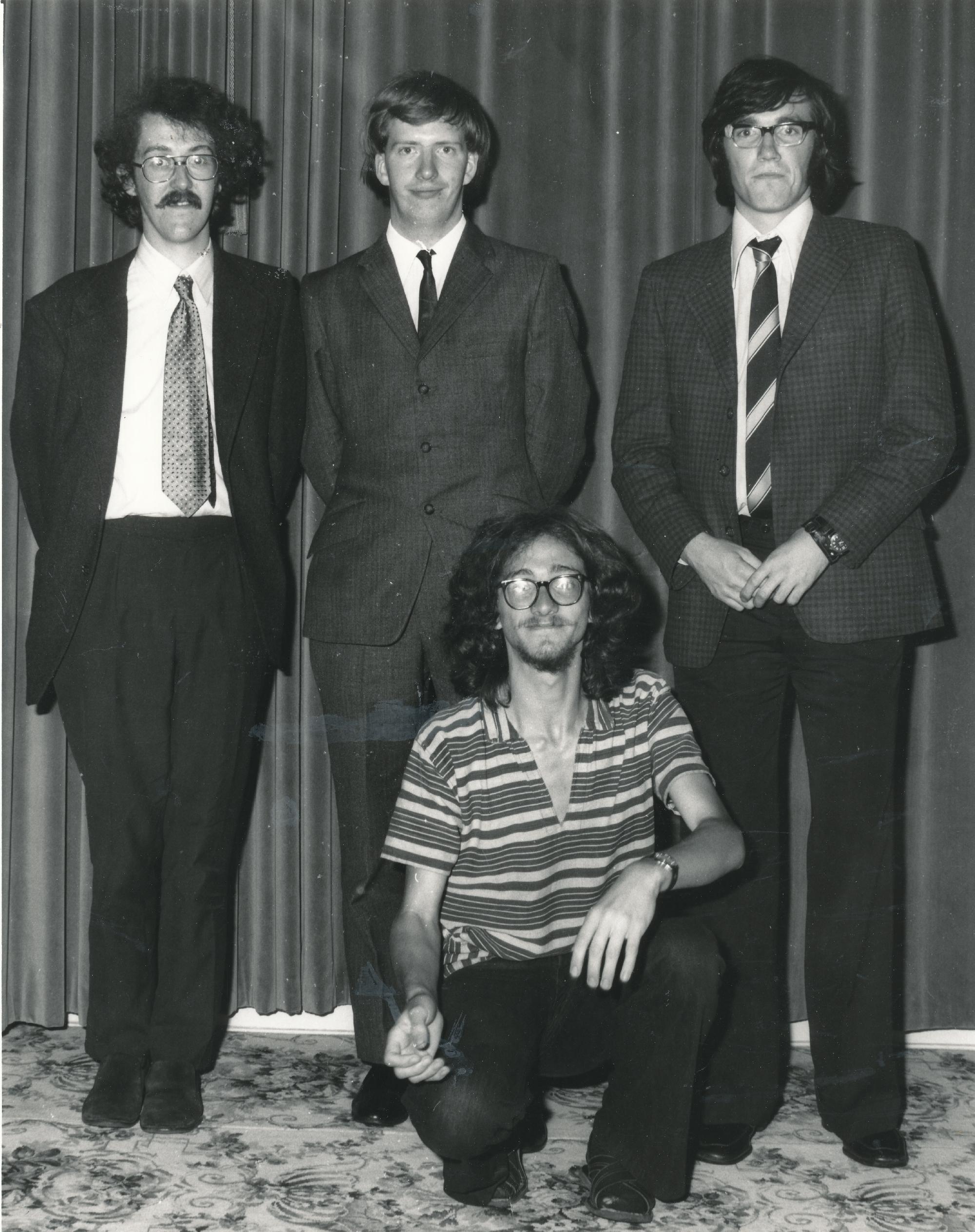
Mestel has his own named variation in the Giuoco Piano first played in Mestel-Doyle, Dublin 1975:
According to Wikipedia : “Between 1976 and 1988, he was a frequent member of the English Chess Olympiad squad, winning three team medals (two silver and one bronze). In 1984, he earned an individual gold medal for an outstanding (7/9, 78%) performance on his board. Other notable results for English teams occurred in 1978 at the World Student Olympiad in Mexico and at the 1983 European Team Chess Championship in Plovdiv. Both of these events yielded gold-medal winning performances, the latter being exceptional for the highest percentage score (6/7, 85%) on any board. As a player of league chess, he has been a patron of the 4NCL since its earliest days and represented The Gambit ADs in the 2008/9 season.” Jonathan revealed that his most pleasing OTB performance ever was that of Plovdiv.
Jonathan has maintained a long time interest in problems and studies, both solving them and composing them. In 1986 he was awarded the International Master title for solving and in 1997 the International Grandmaster title for solving and in the same year he won the World Chess Solving Championship.
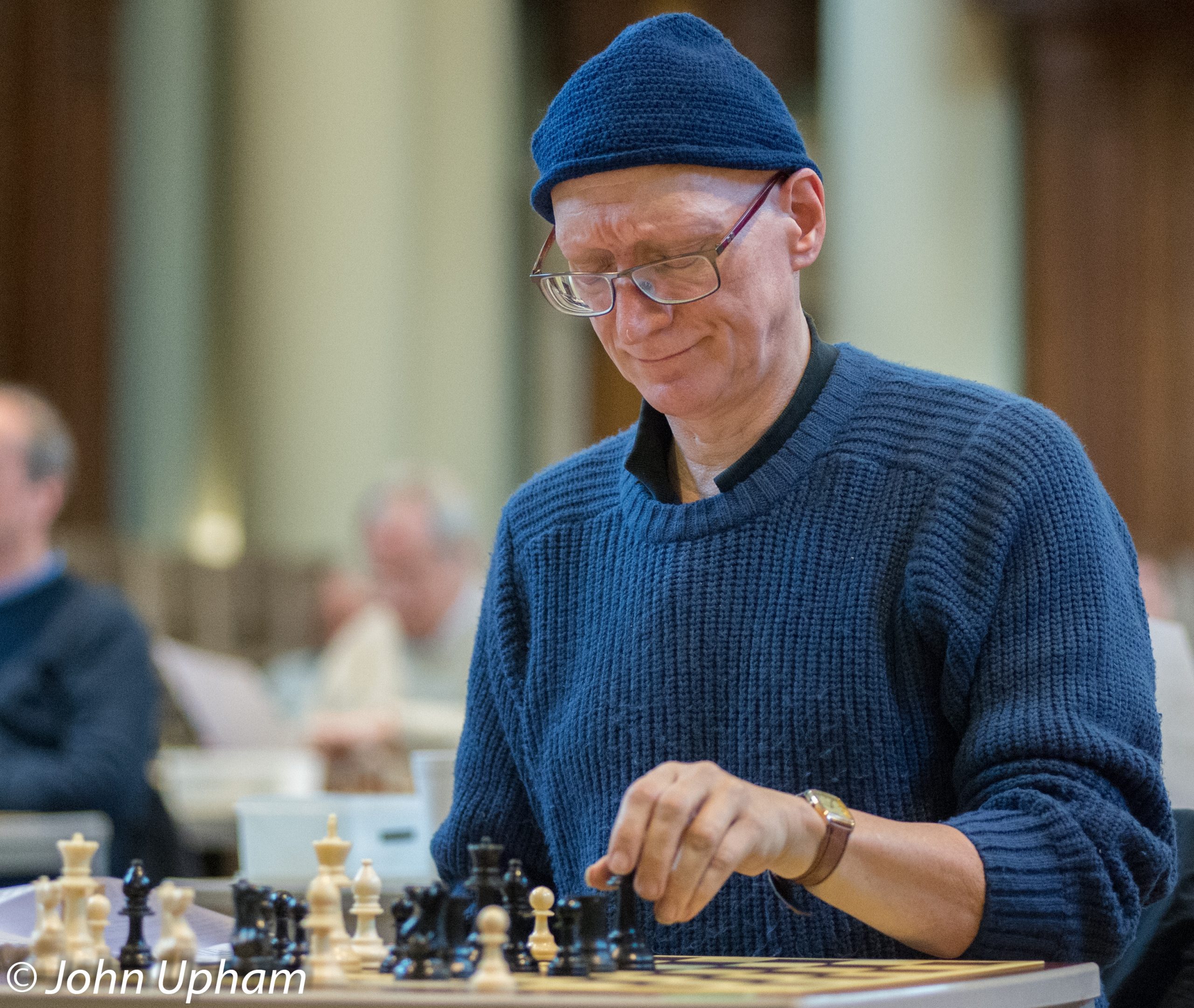
He has represented England in the World Team Solving Championships on many occasions winning in 1986, 1990 (shared with USSR), and then a run of 2005, 2006 and 2007.
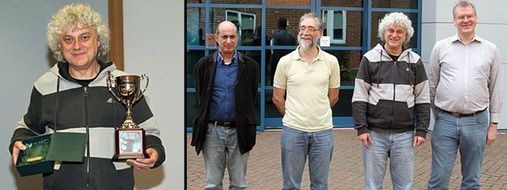
He has played many times in the Lloyds Bank and (now) Winton Capital sponsored British Solving Championships (quite often located at Eton College, Berkshire). He has won the individual title firstly in 1982-83 and then a further 17 times not to mention many times as runner-up.
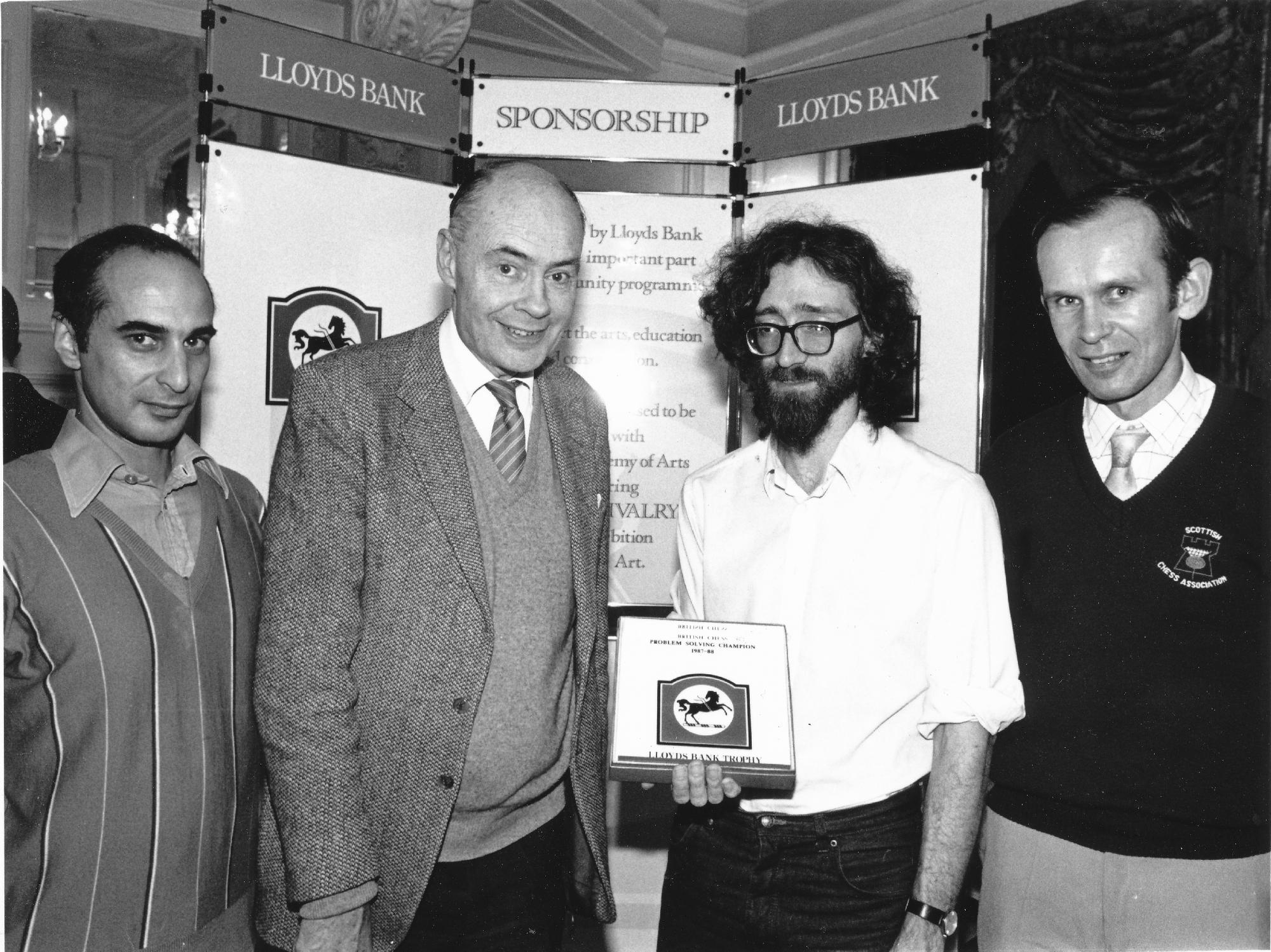
Here are a few examples:
Firstly a prize winning study…
J. Mestel
1.p Niekarker Kruujebitter Ty (tt), 2006
[FEN “8/4pP1k/5q1p/4p3/ppQpP3/3K1pp1/2P5/6R1 w – – 0 1”]
White to Play
and Draw
1.Qe6! [1.Qc8? Qxf7] 1…Qxe6 2.f8Q [2.f8N+? Kh8! (2…Kg8? 3.Nxe6 g2 4.Nxd4 exd4 5.Kxd4) 3.Nxe6 g2] 2…f2 [2…Qa6+ 3.Kd2 Qe2+ 4.Kc1 Qe3+ 5.Kb2] 3.Rxg3 f1Q+ [3…Qa6+ 4.Kd2 f1N+ 5.Kc1 Nxg3 6.Qf7+] 4.Qxf1 Qa6+ 5.c4! bxc3+ [5…dxc3+ 6.Ke3! (6.Kc2? b3+!) 6…Qxf1 7.Rg7+ Kh8 8.Rg8+ Kh7 9.Rg7+ Kxg7] 6.Kc2 Qxf1 7.Rg7+ Kh8 8.Rg8+ Kh7 9.Rg7+ Kxg7 ½-½
and another study:
and another:
and
and
and now a problem:
Jonathan Mestel
British Chess Magazine, 2007
#3, 7+6
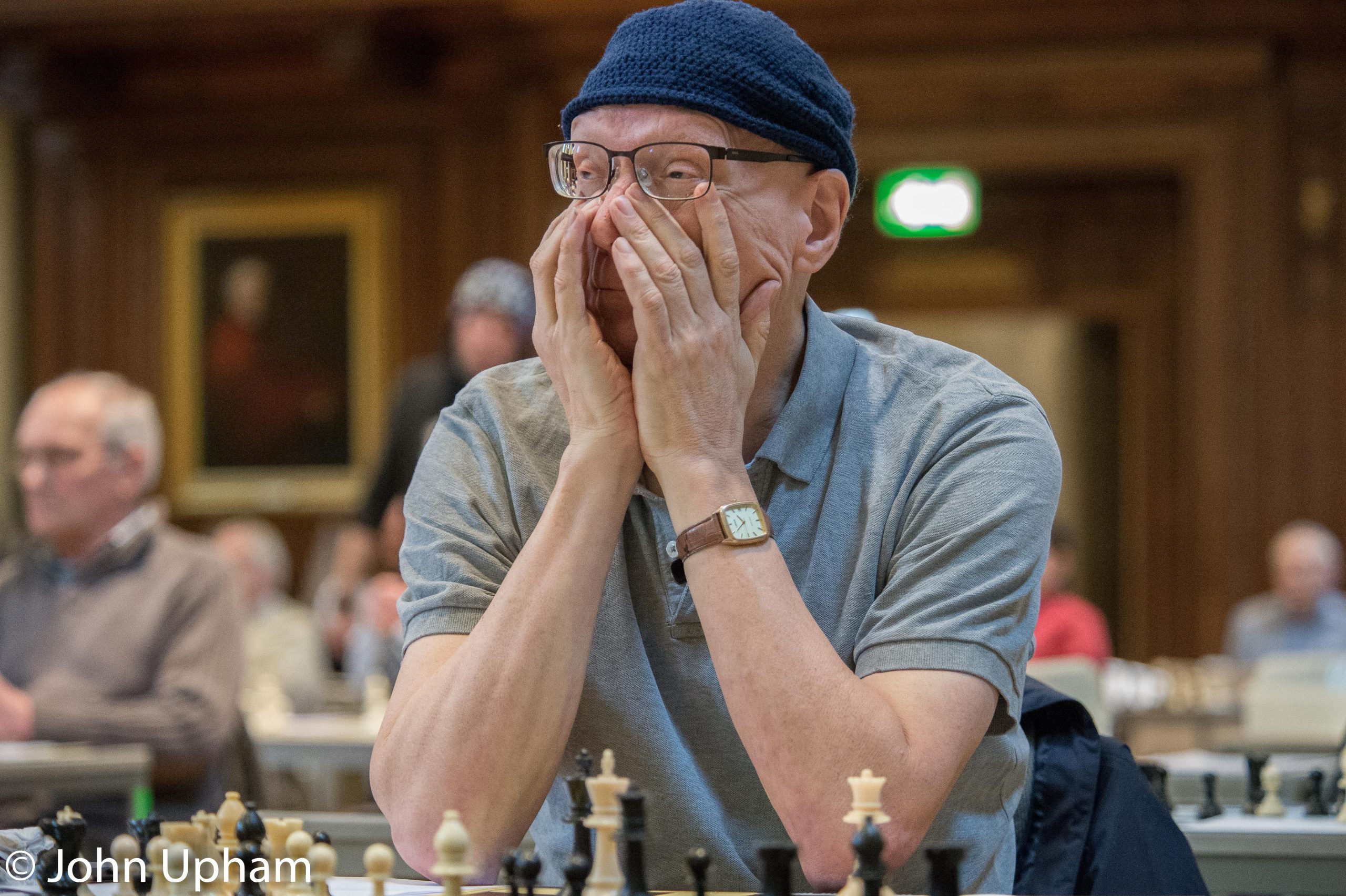
Here is his staff page from Imperial College, London
and his personal page may be found here
A.J.Mestel. Not Your Ordinary Grandmaster. by Neil Blackburn (aka Simaginfan).
Here is his Wikipedia entry
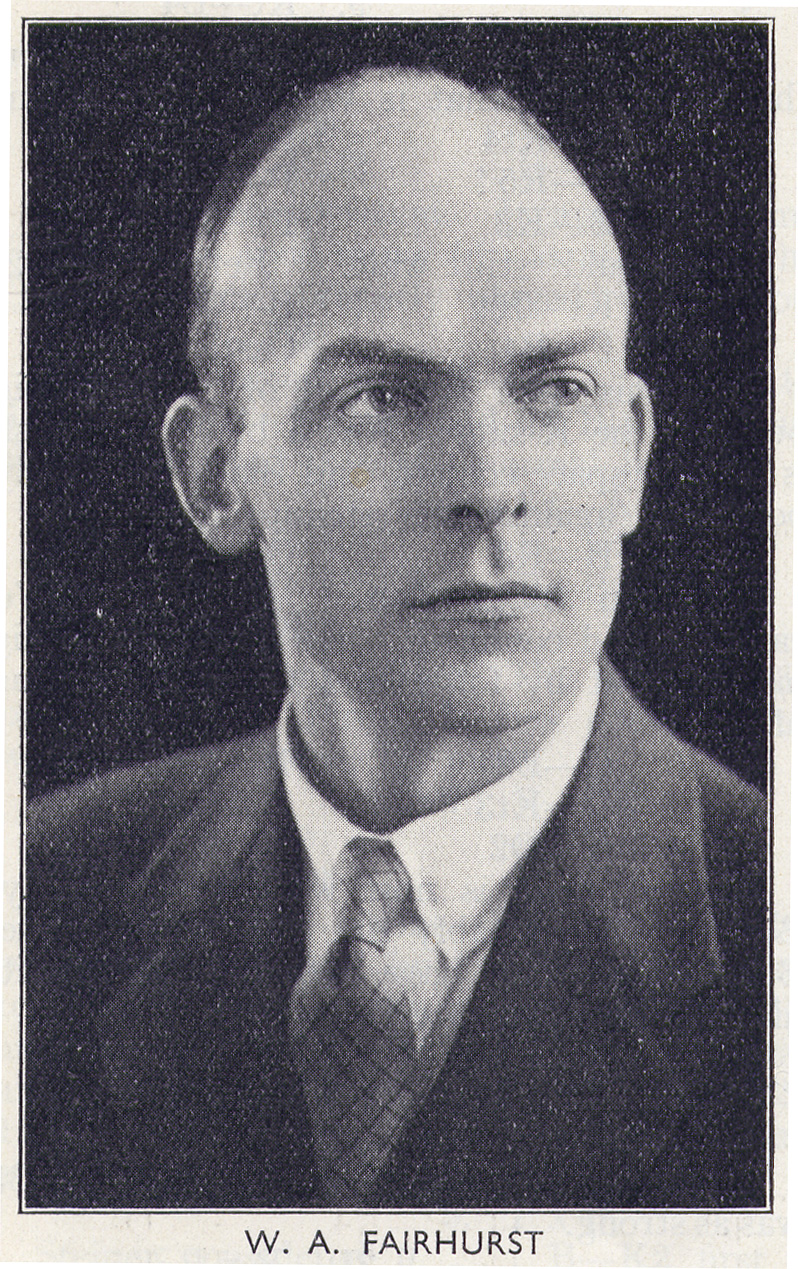
Remembering IM William Albert Fairhurst CBE (21-viii-1903 13-iii-1982)
From The Encyclopedia of Chess by Anne Sunnucks :
“International chess master, British Champion in 1937 and Scottish Champion in 1932, 1933, 1934, 1936, 1937, 1938, 1946, 1947, 1948, 1949 and 1962.
Born in Alderney Edge in Cheshire on 21st August 1903, Fairhurst taught himself to play chess from books on the game, when he was 13, when he was 18 he won the Cheshire Championship.
His first major international success was at Scarborough in 1927, where he tied for Yates for 2nd prize, ahead of Bogoljubov, Sir George Thomas, Buerger, among others.
In 1931 he went to live to Scotland, quickly established himself as a leader of Scottish chess and played a major role in agreements between the British Chess Federation and the Scottish Chess Association. In 1932 he gave a blindfold simultaneous display, winning nine games and drawing three, in the Polytechnic Club in Glasgow, and in 1933 he drew match of six games against Eliskases.
Fairhurst has represented Great Britain in matches against Czechoslovakia and the USSR in 1946 and 1947; against the Netherlands in 1937, 1938, 1949 and 1952 and against the USSR in 1954. He also played in the Great Britain v. Australia radio match in 1947. He has represented Scotland in six chess Olympiads, those of 1933, 1956, 1958, 1964, 1966 and 1968.
At Hastings in 1947 he came 5th and went through the tournament without losing a game.
Senior partner of a leading firm of engineers and designer of the new bridge over the River Tay at Dundee (the longest river crossing in Europe), Fairhurst was Chairman of the Scottish Branch of the Institute of Structural Engineers and author of Arch Design Simplified. He was also a member of the Royal Fine Art Commission for Scotland.”
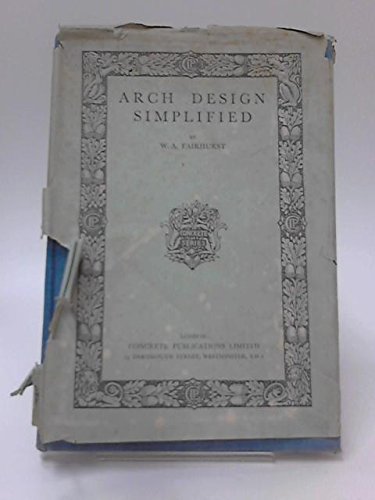
Here are his games
Here is his Wikipedia entry
BCN wishes Mandy Hepworth Happy Birthday (12-iii-1968)
Mandy Allison S. Hepworth was born in Scunthorpe, (now) Humberside (but at the time Lincolnshire) on Tuesday, March 12th 1968 to Neville Ian Hepworth and Alice Hepworth (née Ma). Neville was a Computer Manager and Alice Ma was originally from Singapore. The family moved to “Mulgoa”, The Fleet, Fittleworth, Pulborough, RH20 1HS, West Sussex.
(Thanks to David Mills who updated us on the Lincolnshire / Humberside issue)
Neville taught Mandy how to play chess.
She attended Westergate Comprehensive and Community School where Peter Barton coached both the boys and the girls teams.
From The Bognor and Arun Chess Club Archive we have :
“One particular junior, Mandy Hepworth, came to notice. In the British championships at Brighton in 1980 she came first equal in the girls under-14 competition. Peter Barton also organised some external competitions and from 1981 for a few years he organised young masters’ tournaments at the Westergate School after receiving sponsorship from the Amey Roadstone Corporation. ”
From The Bognor Regis Observer we have :
Westergate girls were chess queens in 1980
This group of girls had every reason to smile ‘“ they had just pulled off the school chess world’s equivalent of David v Goliath.

“It was January 1980 and they all attended Westergate Comprehensive and Community School and had just beaten the mighty Dorothy Skinner High School, in Brighton, to qualify for the final of the Sussex Girls under-16 chess championships.
The team’s captain, Mandy Hepworth, who was just 11-years-old at the time, was lauded by the school’s chess teacher as “one of the hottest properties in junior chess”.
His name was Peter Barton and, according to the report published in the Observer on January 25 1980, he had masterminded something of a chess resurgence at Westergate.”
Some 50 youngsters at the school were playing chess proficiently and 10 of them were girls.
Even though junior chess was somewhat dominated by boys at the time, Mr Barton was confident his girls could deal with any challenge thrown at them by anyone – and he had high hopes for Mandy.
He told the paper: ‘For a girl she has remarkable ability and we would hope to enter her for the British junior championships later this year.
In the past it has always been a boys’ game but, if you can catch the girls when they are young and keep their enthusiasm, there is no reason why they cannot go on to become masters.’
Does anyone know if the girls won the final? Did Mandy make it to the British junior championships?”
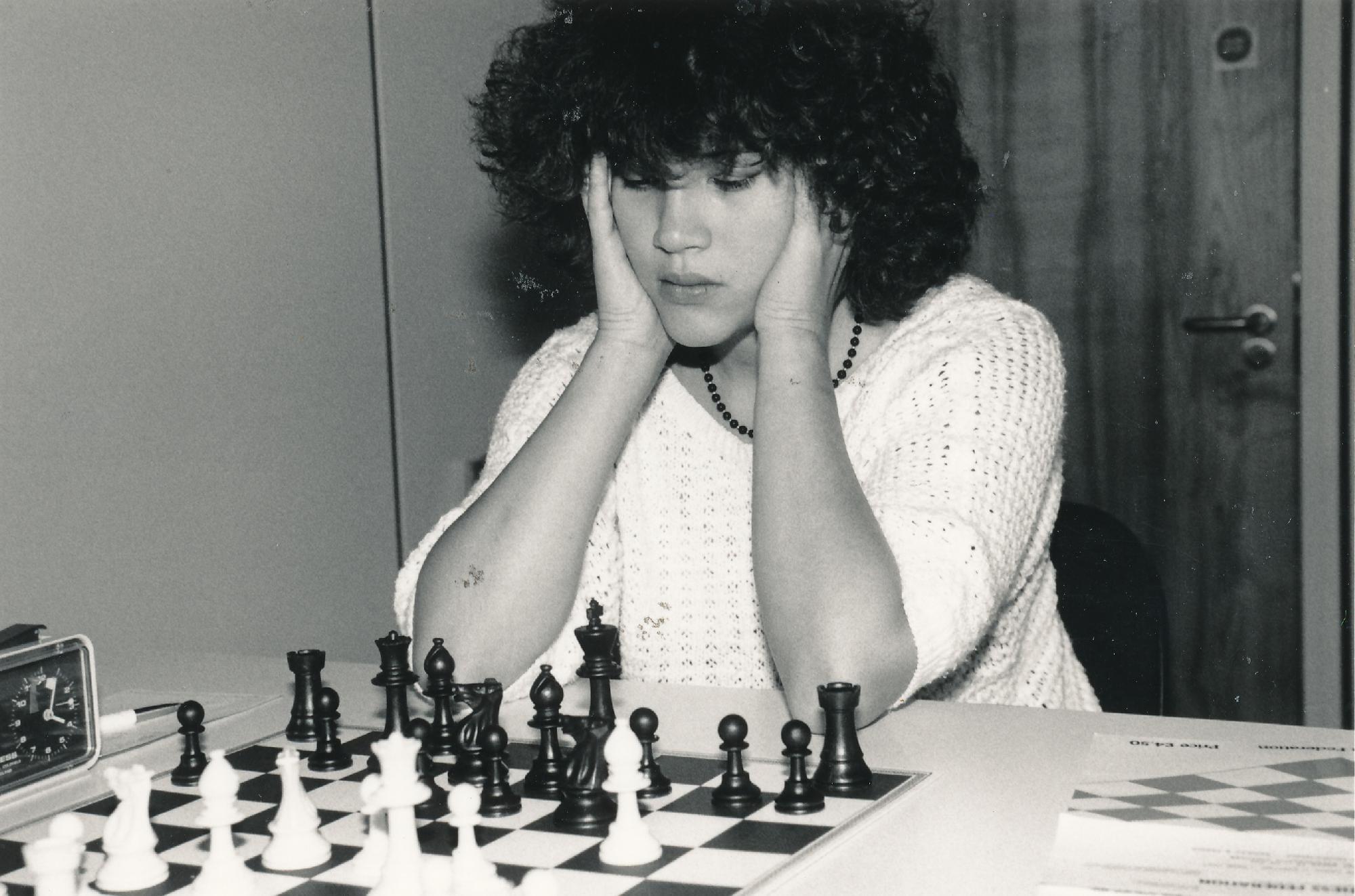
Mandy entered her first major competition when she was 11 and beat her father when she was 14. She became the Under-12 British Girls’ Champion (Ed: this is not correct) and the Under-14 Champion in Brighton, 1980 (shared with Susan Walker), the Under-16 Champion in Brighton, 1984
In 1985 she played in the Eileen Tranmer Memorial in Brighton. All the players resided in the same guest house. The event was organised by Ray Keene. Mandy was 4th with a TPR of 2296.
In 1986 she represented England in the Women’s Olympiad (Dubai) and scored an excellent 75% on the Reserve Board.
In 1988 she played at the Oakham Young Masters and had a tough time scoring 2.5/9
In October 1988 she travelled to Adelaide, Australia to play in the World Under-20 Girls’ Championship.
Following that we have no further information. It would appear (perhaps you can help?) that Mandy gave up competitive chess and did not play again.
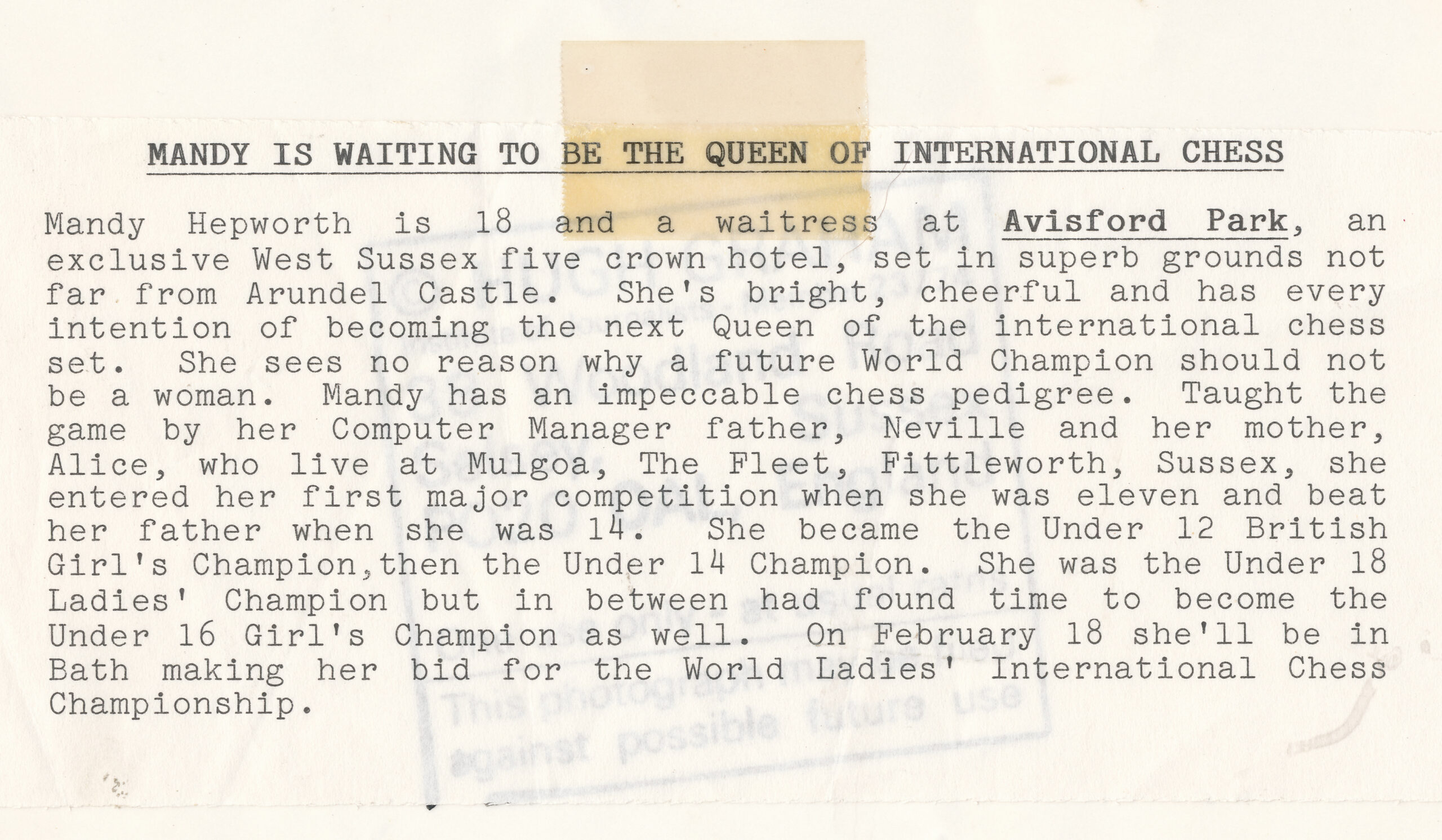
We end with this against an experienced opponent :
BCN wishes Happy Birthday to IM Peter Graham Large (02-iii-1956)
Peter is a solicitor by day and originates from Bromley in Kent and plays for Epsom Chess Club in the Surrey League.
Peter was Southern Counties (SCCU) champion for the 1979-80, 1987-88 and 1990-91 seasons.
He became an International Master in 1987 and his peak rating (according to ChessBase) was 2370 in July 1986.
Peter is known as Plimsol on Chess.com !

A highlight of Peter’s career was coming 1st= with Paul van der Sterren at the 1980 Philips & Drew IM Tournament with a performance of 2723. Peter shared 1st place with Darryl Johansen with 10/14 at the 1984 London Philips & Drew Knights.
At Hastings 1986/1987 he scored this win over Eduard Gufeld :
and this nice attack against Andrew Muir :
and this exciting game from the 1990 Suffolk Open provided by Tony Rubin :
We remember Ian Duncan Wells who very sadly passed away on this day (January 25th) in 1982 aged seventeen years.
From Chessgames.com :
Ian Duncan Wells was born in Scarborough, England. He was awarded the FM title in 1982. At the Islington Open in December 1981 he finished 1st= with John Nunn and Tony Miles. Following a 5th= placing in the Golden Pawn of Brazil Junior tournament held in Rio de Janeiro he and other players went swimming outside their hotel. He got into difficulties and although he was brought ashore by lifesavers he died after six days in a coma.
Here is an excellent article from chess.com written by Neil Blackburn.
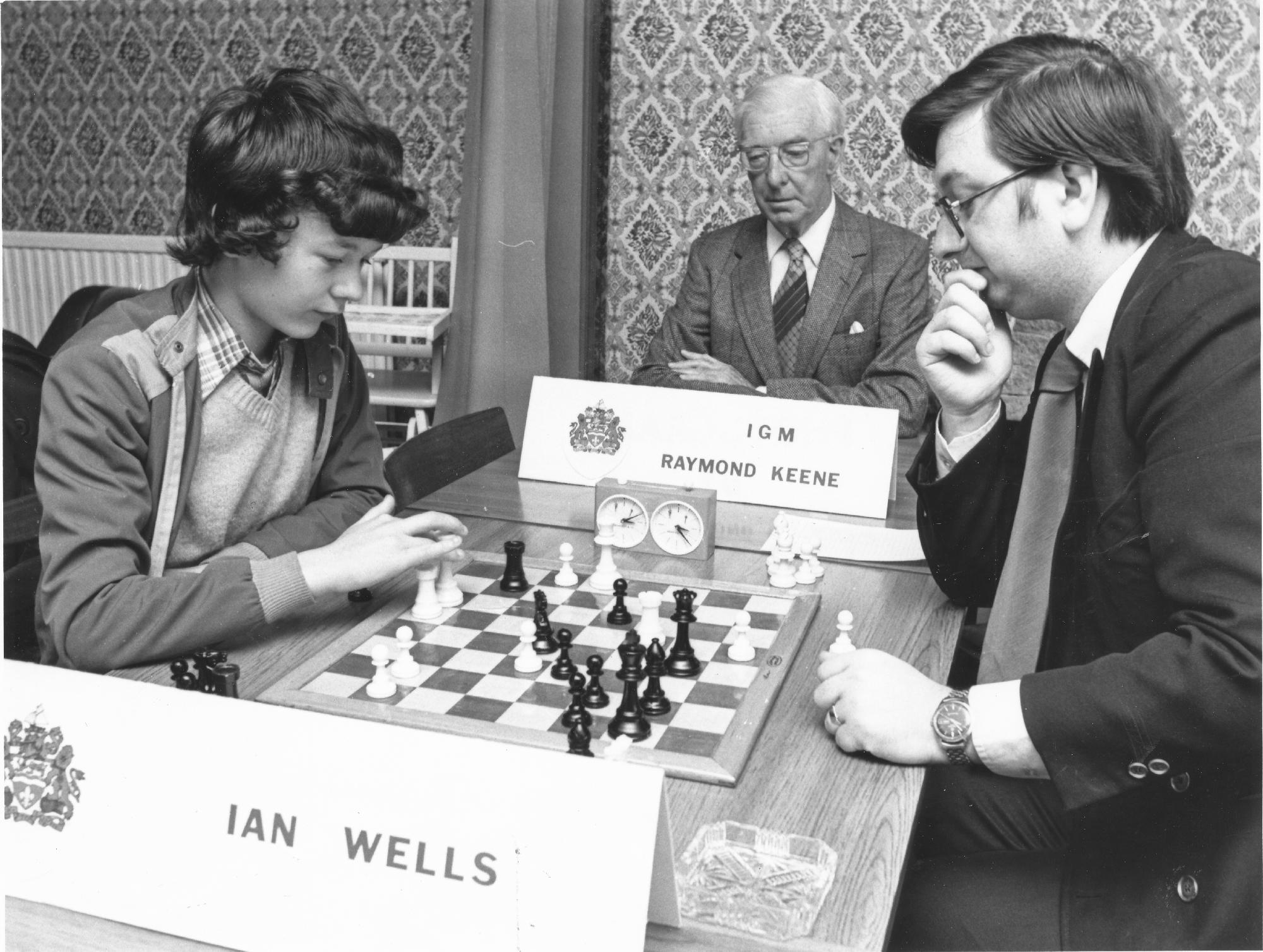
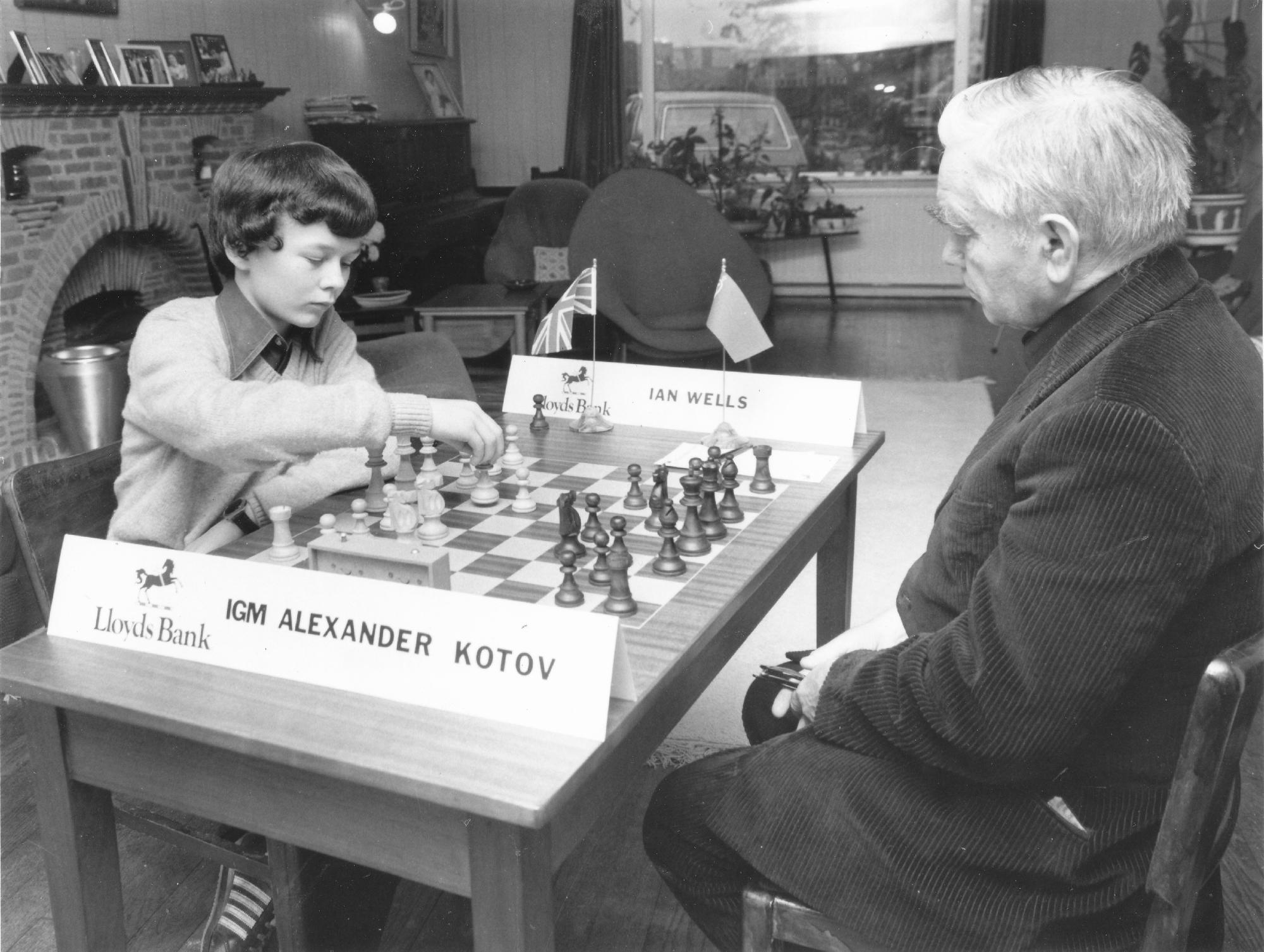
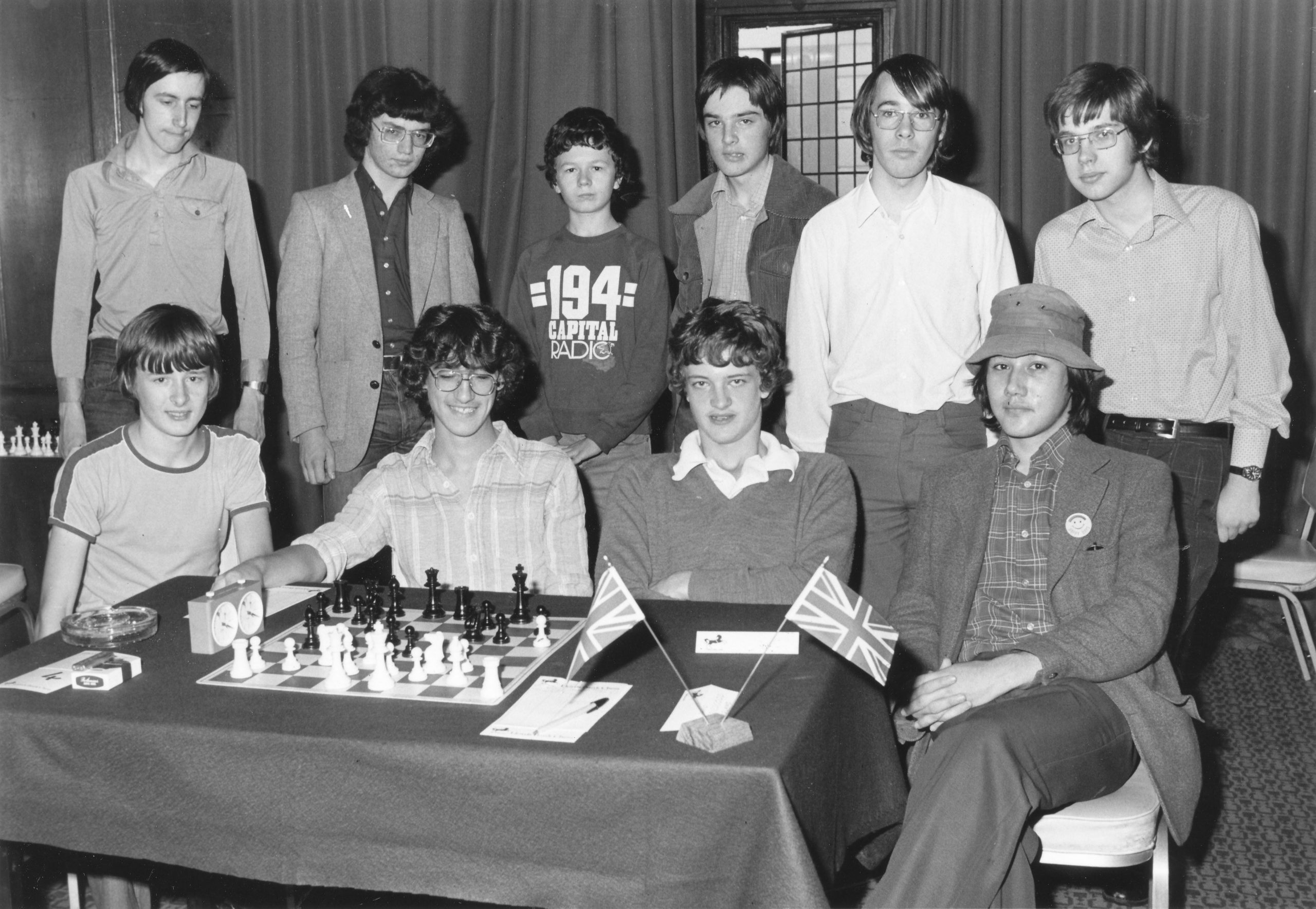
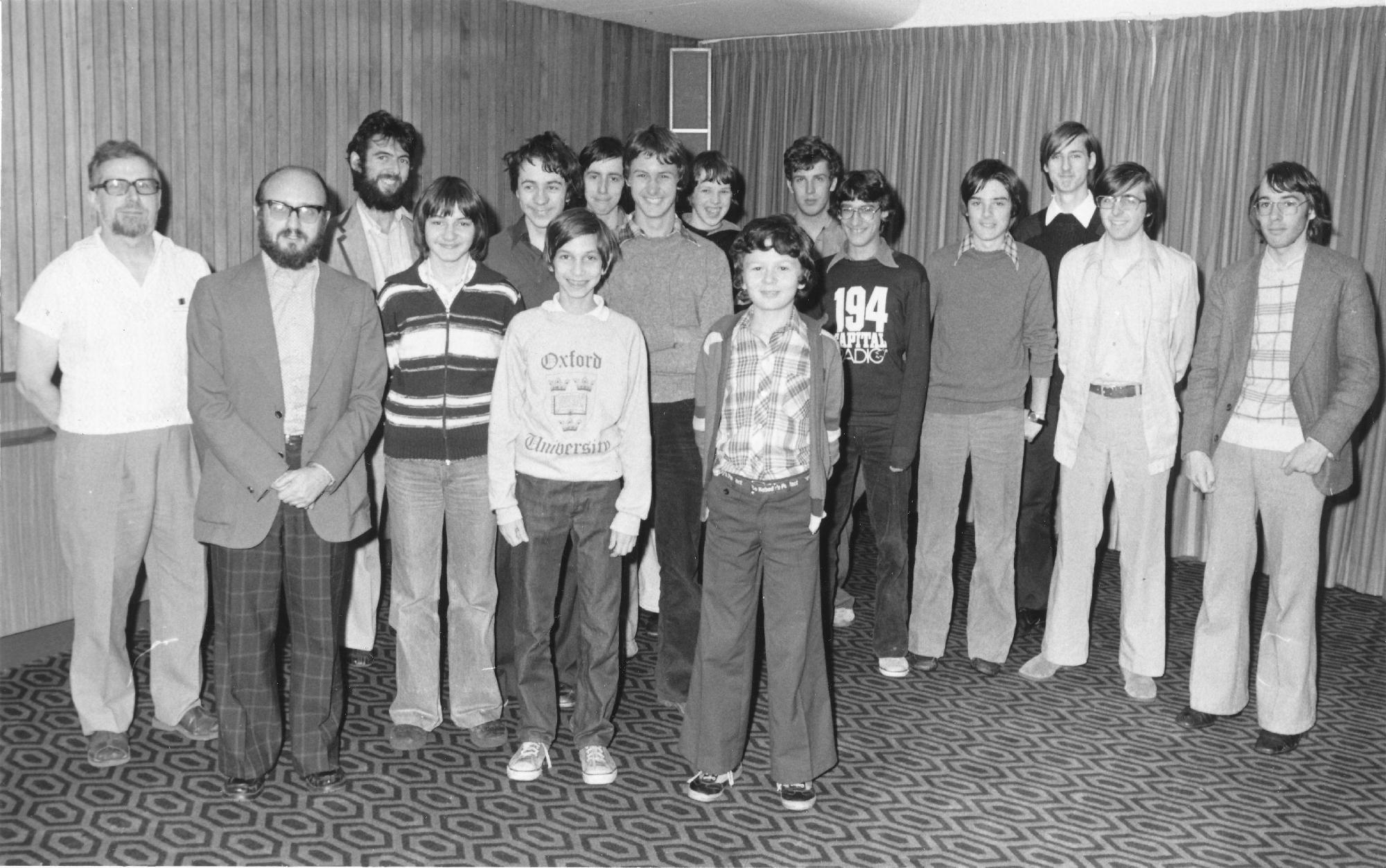

We remember FM Peter Clarke who passed away on Thursday, December 11th, 2014 whilst living at Chapel House, Bude, Cornwall, EX23 9SQ
Peter Hugh Clarke was born on Saturday, March 18th 1933 in West Ham, London. His mother’s maiden name was Ekblom.
From The Modest Master of Morwenstow by James Pratt (sadly, as yet, unpublished) :
“Peter Hugh Clarke was born in London on 18th March, 1933. At the age of eight or nine he taught himself the game from ‘The Book of Knowledge’ and played friendly games with his cousin, who was about a year older. Peter’s father supported his game for many years. PHC was a student at St. Bonaventures School and London University. World War II, and its even longer aftermath, robbed him of a number of playing opportunities. It is surprising that he had no childhood heroes, although later the play of Botvinnik, Keres and Smyslov impressed him.”
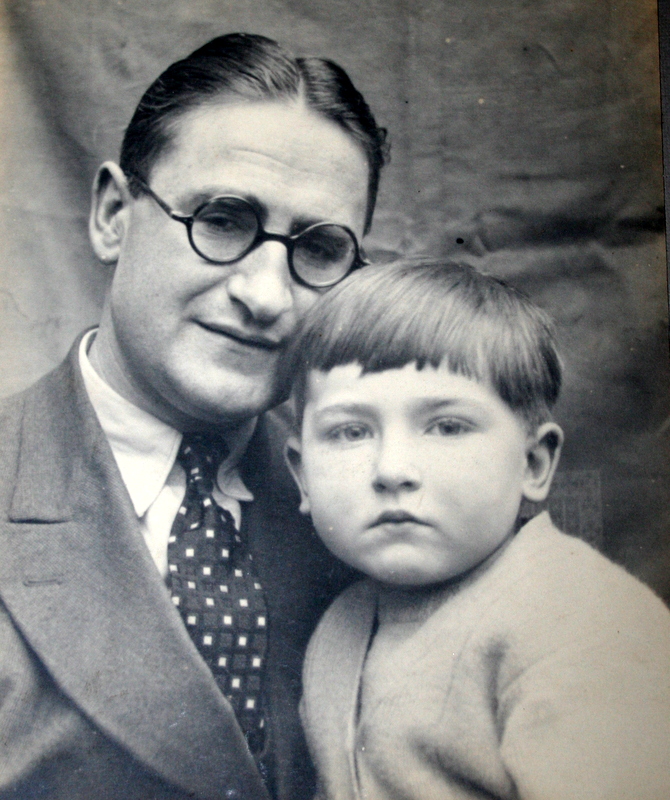
From British Chess (Pergamon, 1983) written by George Botterill :
Chess correspondent of The Sunday Times, Clarke played for England in the Olympiads of 1954, 56, 58, 60, 62, 66 and 68. He has never won the British Championship but has come 2nd on 5 occasions.
A fine writer. His best books are Mikhail Tal’s Best Games of Chess
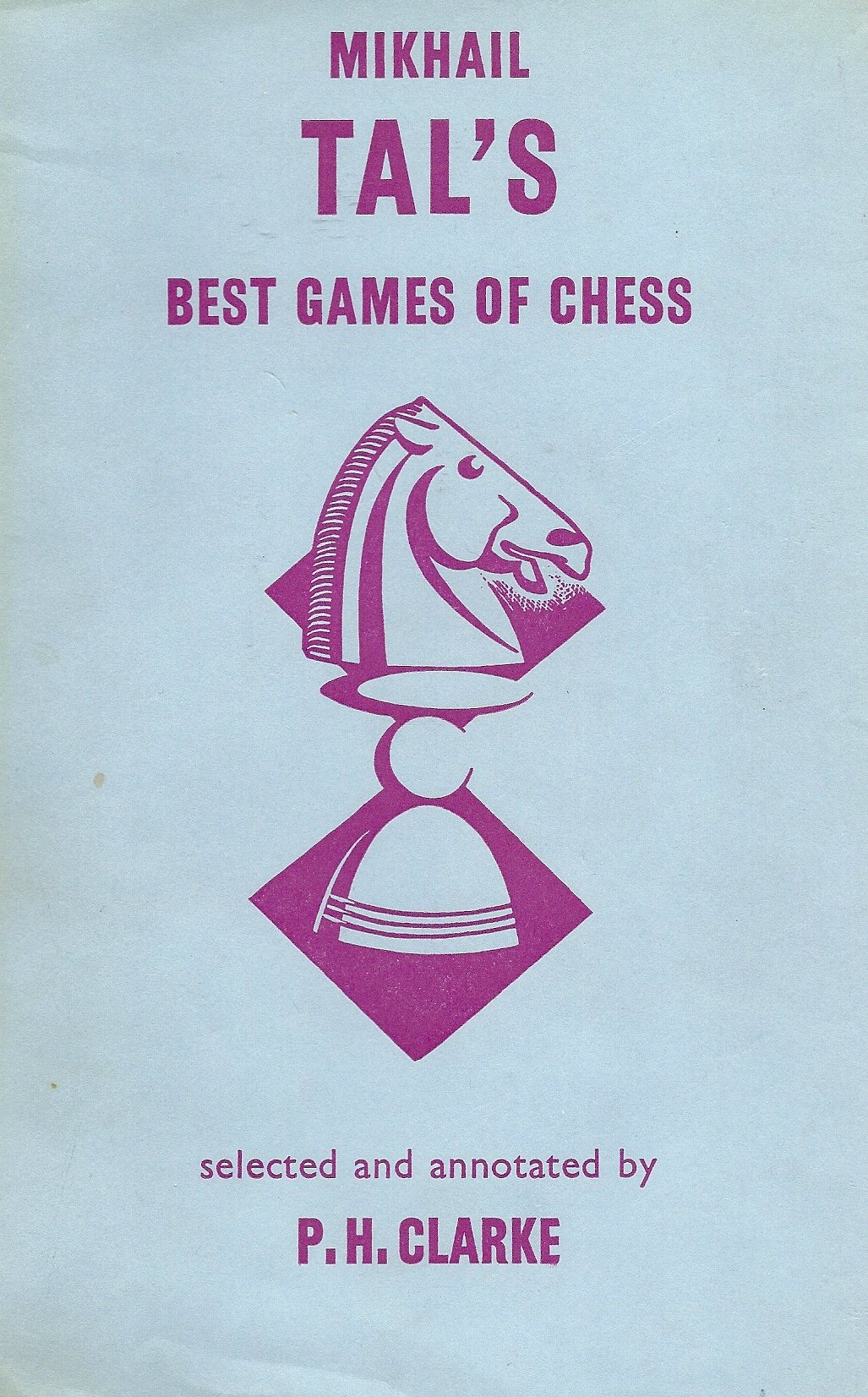
and Petrosian’s Best Games of Chess 1946-1963 both published by Bell.
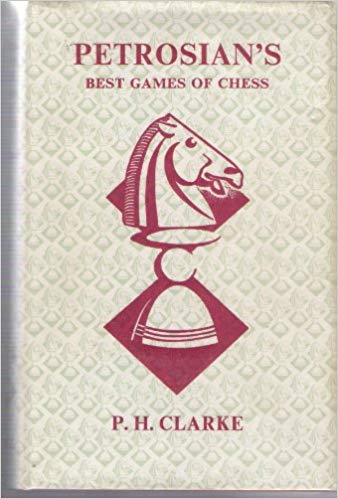
The most remarkable thing about Clarke’s chess career was they way in which he became transformed, in about 1968-9, into the most drawish of players. In British tournaments he has become notorious for correct but dull solidity.”
Peter was Southern Counties (SCCU) Champion for the 1945-55 season.
Peter was England’s third Correspondence Grandmaster (CGM) in 1980 after Keith Richardson and Adrian Hollis.
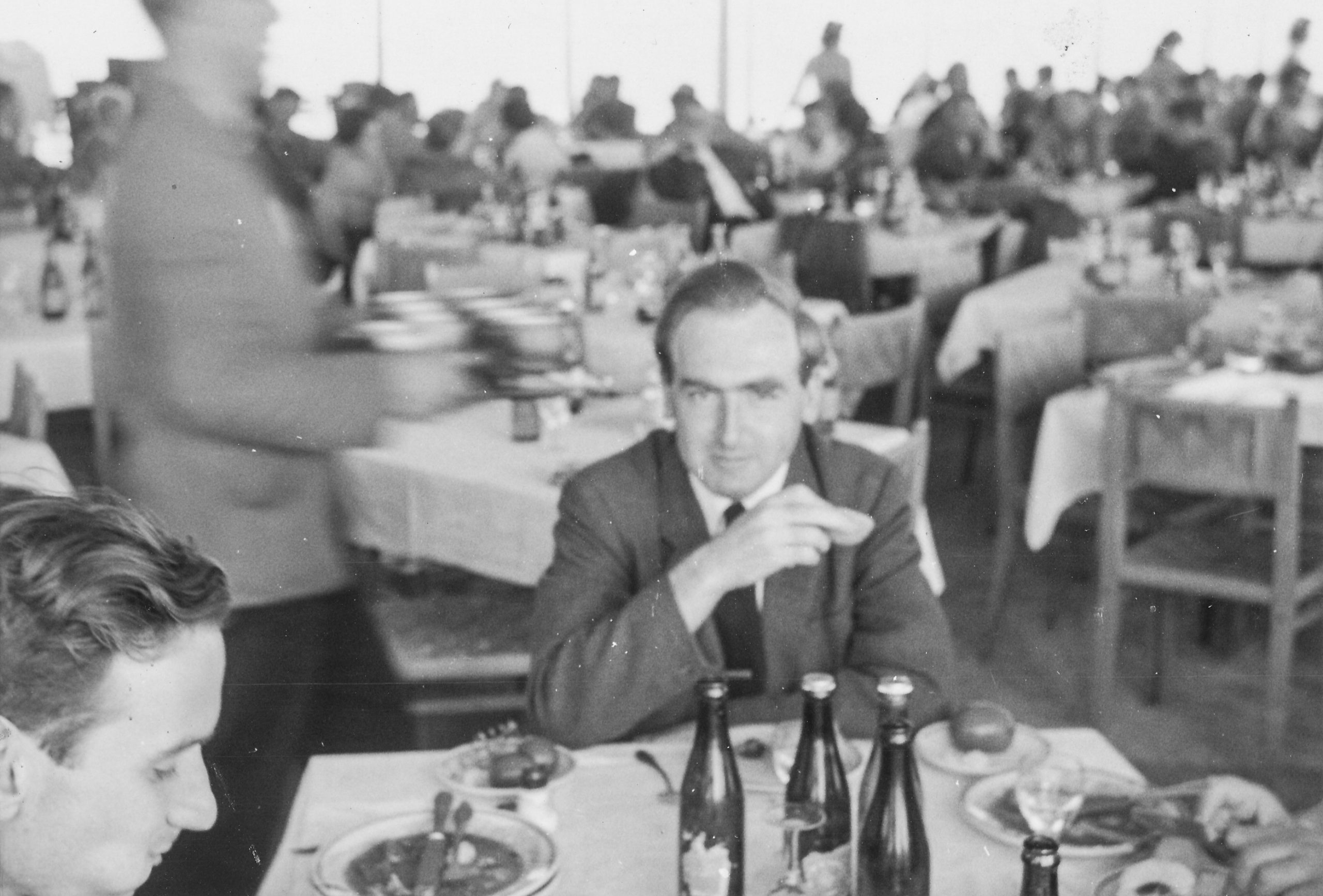
From BCM / ECF :
“FIDE and British Master P.H. Clarke will be best remembered as biographer to Tal and to Petrosyan, but he was so much more. The young Clarke played for Ilford CC in the London League and for Essex at county level. Doing national service he was to learn the Russian that was to so shape his writings.

For a brief period in the late 1950s, and early sixties, he was the number two player in England, ahead of the vastly more experienced Alexander and Golombek. He played, of course, below Jonathan Penrose, a partnership that bore fruit when preparing openings; latterly they both became Correspondence Grandmasters.”

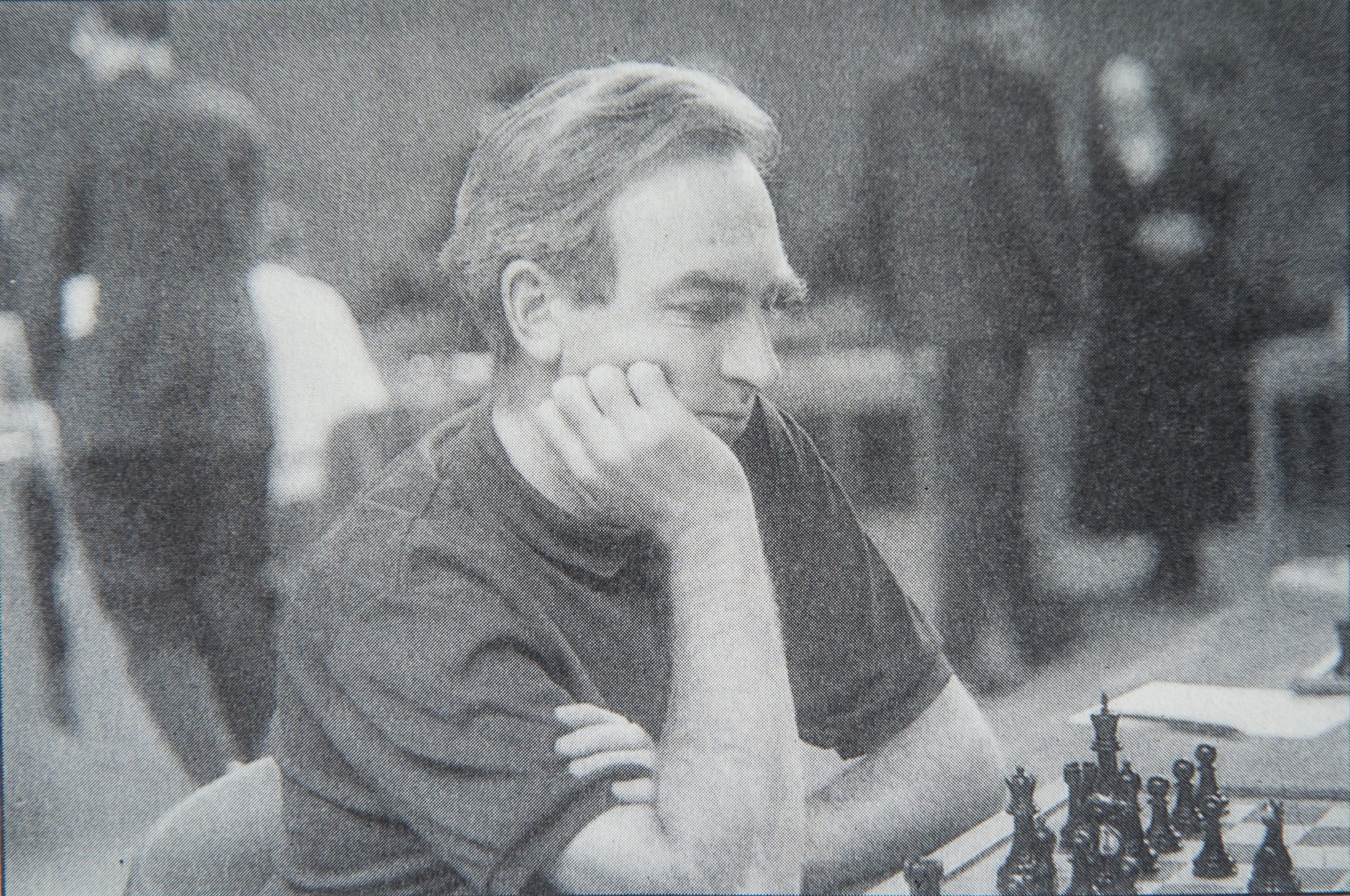
“At the British Championships itself he finished second on his first appearance; he was to tie for silver medal on no less than five occasions, appearing, almost without a break for thirty years, a run that ended in 1982. He represented the BCF – as it then was – in eight Olympiads, playing on top board in 1966.
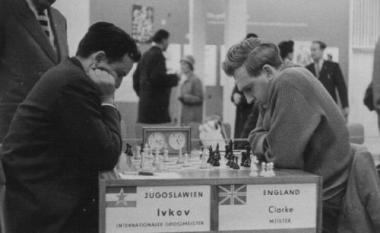
The Clarke family moved to the West of England in the late Sixties. PHC played in thirteen WECU Championships, and lost only twice. As a player he could be cautious, agreeing too readily to draws. Accuracy and respect meant more to him than ambition. The biographer became a journalist as illness cut short his playing career. In his time he beat Larsen, Penrose and Szabo.
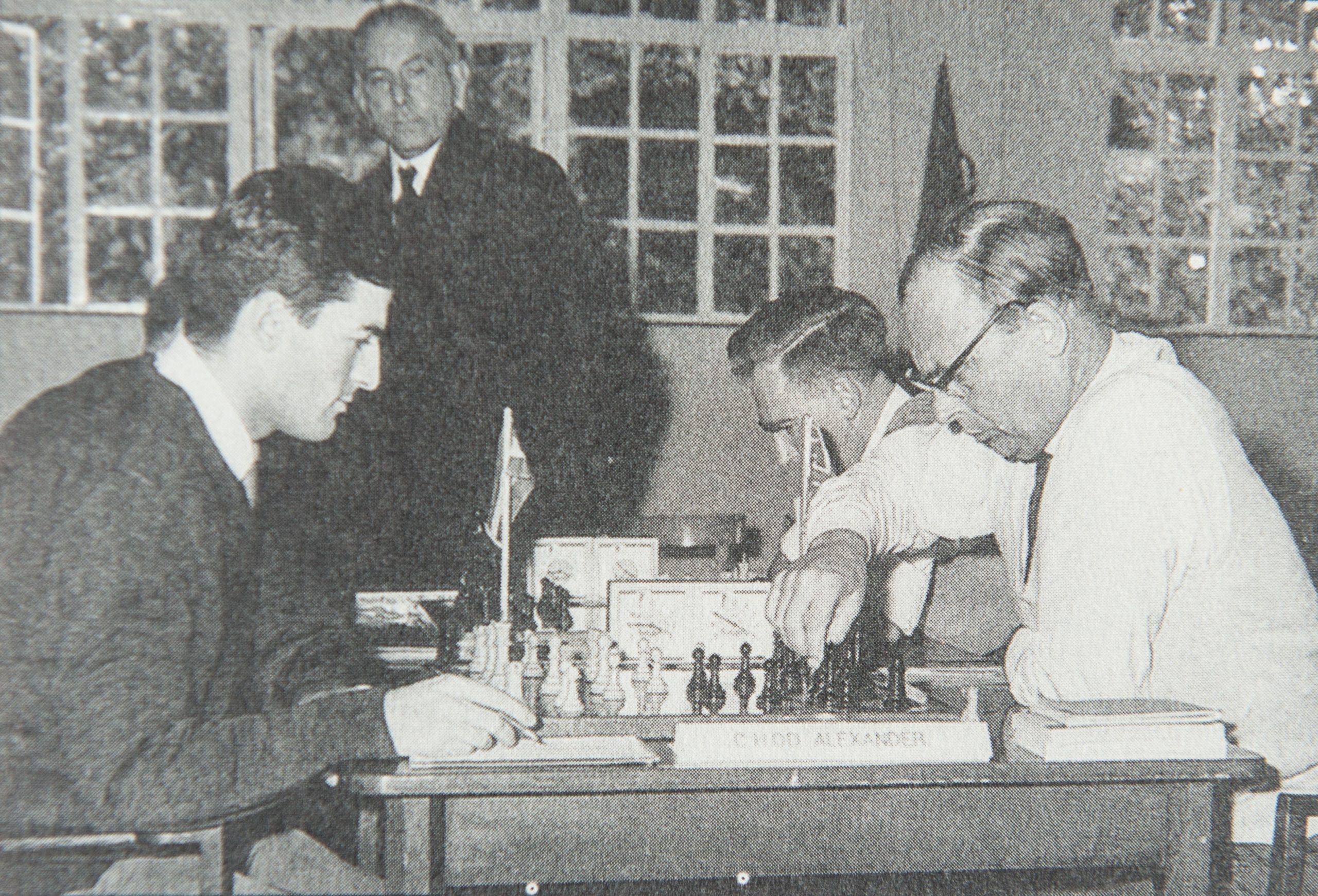
In 1962 he married BH Wood’s daughter, Peggy. They had three daughters. In 1975 my mother happened across Peter and Peggy on Morecambe prom. ‘Never’ she was later to tell me, ‘have I seen a couple more in love.'”
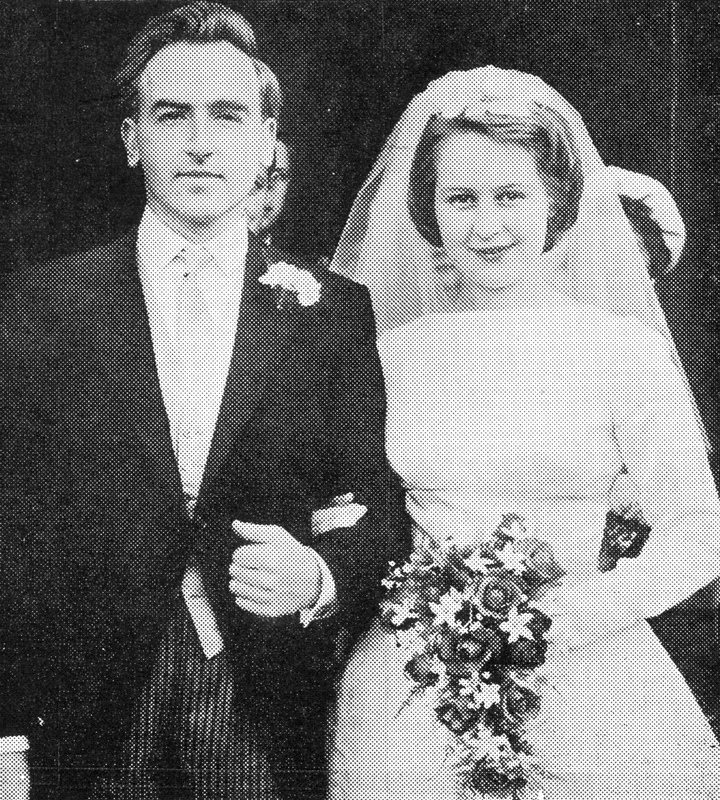
We are grateful to James Pratt to allow us to quote from the the sadly unpublished “Modest Master from Morwenstow” as follows :
PHC by John Littlewood :
“Peter had a relatively short career at the top and it is interesting to comment on his style. In essence, his great strength lay in positional understanding which backed-up his defensive skills rather than helped his ability to create wins; in other words, he won games in which his opponents over-pressed or opted for dubious positional moves.
After doing well in English chess, he was perhaps pushed into international chess too early for him to develop his own personal creative style. Playing for England and meeting strong players, he tended towards a rather negative approach that may have been necessary for the team but was not good for his own personal progress, as shown when he later met English opponents who outstripped him in their positive will-to-win. His friendship with Penrose (a far stronger player) led to far too many draws which did neither of them any good.
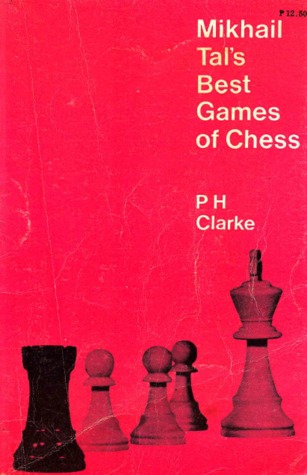
To be fair, Peter was not an easy player to beat but, on the other hand, he was not too hard to draw against if you felt so inclined. His forte lay in his knowledge of the game and his excellent writing skills, where he was at his happiest; there is hardly a book of his that I haven’t enjoyed.”
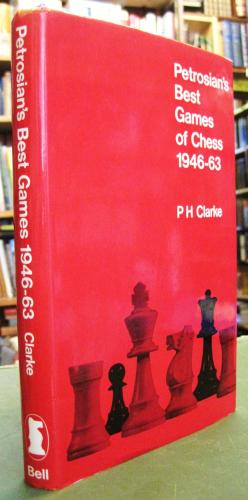
Writing in BCM 04/64, John Littlewood called PHC a self-style non-tactician and disagreed with Clarke’s belief in the inner logic (‘I have made no mistakes and therefore my position is OK.’) of positions where tactics are to the fore.

PHC by Leonard Barden :
“Peter’s contribution to British Chess was important as a player and even more so as a writer. His best period was 1956-61. He, Penrose and myself used to stay in the same hotel during the British Championships and prepare and analyse together, although we played hard when actually paired. Peter was the solid man in the English team, gradually taking over the role of Golombek. It was important that we did reasonably well in this period which provided a bridge between the Alexander/Golombek era and the rise of Keene/Hartston.
Peter was always a good friend to me and his family gave me hospitality each year during the Ilford Congress. Peter’s books, especially the one about Tal, were real works of scholarship in an era where there were no computers to facilitate the job. He could have achieved more as a player if he had been able to concentrate fully on that, but the economic climate then was poor for professionals.”

PHC by Bernard Cafferty :
“Right up to that point of his illness in the 1980’s he had worthily defended the reputation of the older generation in the British Championship, as the last survivor, still active at that level, from the Penrose era. I first saw Peter at the 1951 British Championship at Chester and first played him at the 1952 Bristol Universities individual contest.
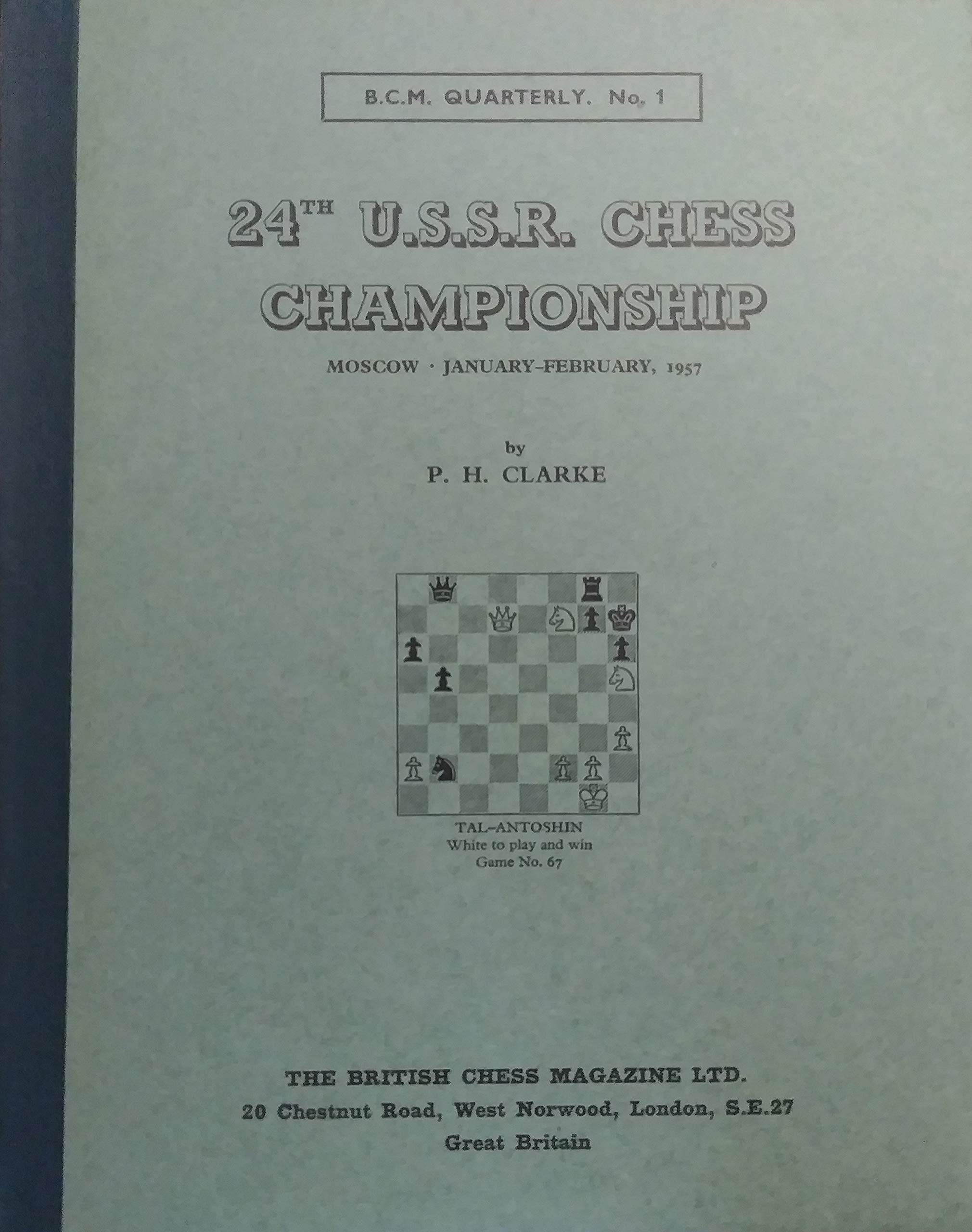
He left the University of London before taking his degree (study of chess rather taking over his life), but then had the good fortune to go on to study Russian while doing his National Service, around 1954-55. Or was he still in the Army when the Moscow 1956 Olympiad took place? He certainly did well there, perhaps less affected than other Westerners by the strangeness of the place that was just recovering slightly from the depths of Stalin’s baleful influence.
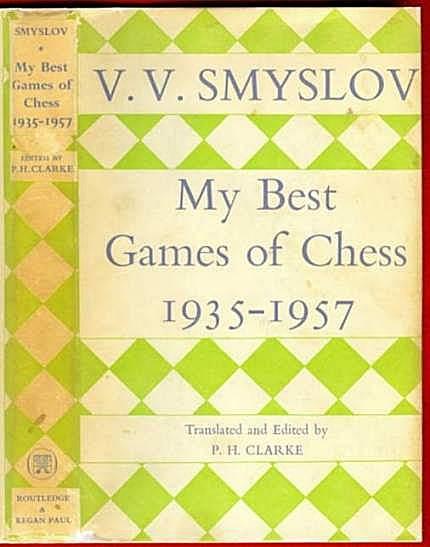
I do recall that for a couple of years Peter changed his cautious style. This was around 1957-58 when he scored one of his two wins against Penrose. Was it at Ilford? I remember that the game appeared with notes by B.H. Wood in ‘The Illustrated London News’ column.
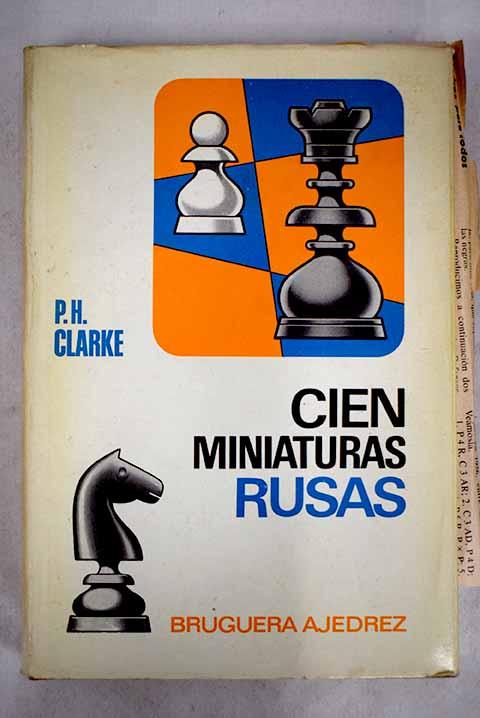
I used to see Peter regularly at the Paignton and Hastings Congresses in the 1990’s but not in the last couple of years. His health seems restored.”
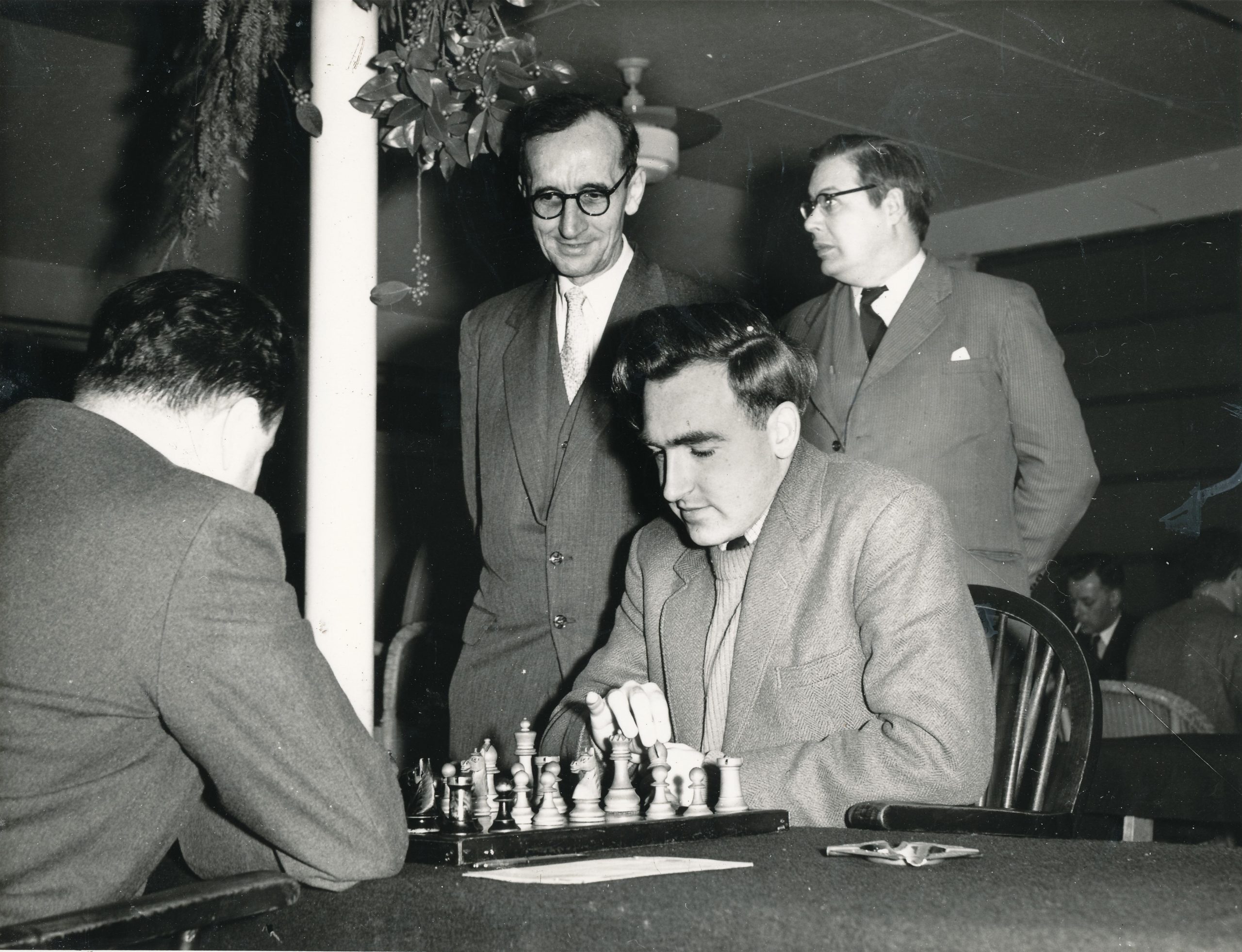
PHC by Ken Harman :
“I am very pleased to hear about your book about Peter Clarke; not sure I can contribute much as I wasn’t a friend of his so only knew him through seeing him and Margaret at chess tournaments. He was a quiet spoken gentleman who played such quiet positional chess that I would call it ‘monastic chess’. I think Clarke thought chess a search for spiritual truth, only to be found in the cloisters of spiritual truth, only to be found in the cloisters of contemplative life – ‘The Thomas Merton of Chess’, if you like. Of course, I have no idea if he was a spiritual man in real life but his chess always struck me as if he was reaching for heaven and found hell in a doubled pawn. He seemed like a nice man and I suspect his wife Margaret was the dominant one. I have his book on Mikhail Tal’s Best Games of Chess (Bell 1961) which is signed by him and may well have been his copy, because as you open the book – there is a small newspaper clipping and a photo of Clarke sellotaped which is rather unusual being that the book is about Tal, and not him. ”
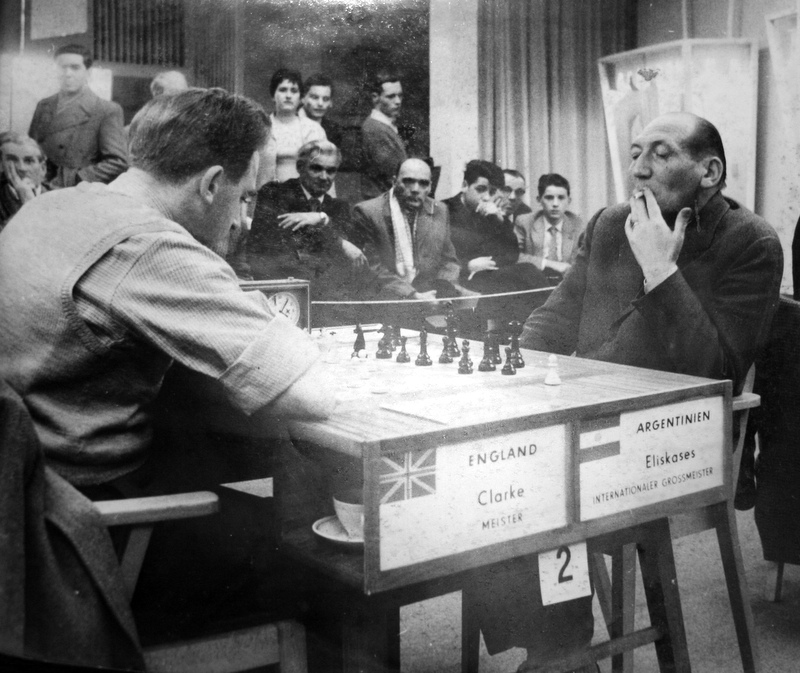
PHC by Alan P. Borwell (ICCF Honorary President) :
“I first met Peter at the 1959 BCF Congress in York when I was a member of local organising committee and then at Paignton and when York played & won the National Club Championship in 1964/5.
In 1966 I played Peter in the British Chess Championship in last round in Sunderland.”
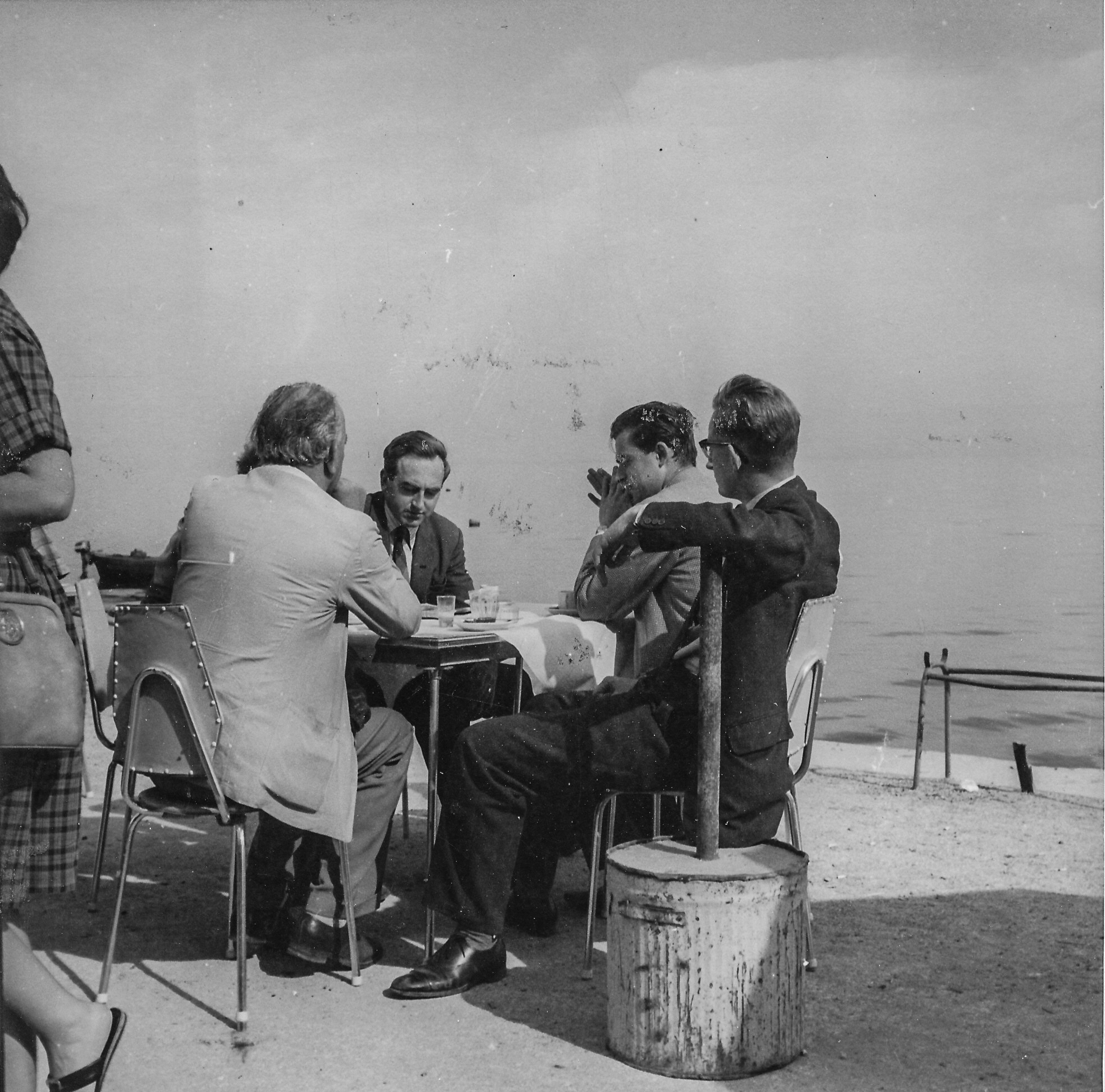
and from Wikipedia :
Peter Hugh Clarke (18 March 1933 – 11 December 2014) was an English chess player, who hold titles FIDE master (FM) and International Correspondence Chess Grandmaster (1980), FIDE International arbiter (1976), Chess Olympiad individual silver medal winner (1956).
Peter Clarke started playing chess at the age of six. He twice won the London Boys’ Chess Championship (1950, 1951). He was British Chess Championship multiplier participant where five times won silver medal.
Since 1959, Peter Hugh Clarke has been working as a chess journalist in the newspaper Sunday Times and magazine British Chess Magazine. He known as the biographical book’s author of Mikhail Tal (1961) and Tigran Petrosian (1964). Thanks to his good knowledge of Russian language, he translated the book about Vasily Smyslov in 1958. In 1963 he wrote a book 100 Soviet Chess Miniatures.
Peter Clarke played for England in the Chess Olympiads :
In 1954, at second reserve board in the 11th Chess Olympiad in Amsterdam (+2, =2, -3),
In 1956, at reserve board in the 12th Chess Olympiad in Moscow (+7, =5, -0) and won individual silver medal,
In 1958, at fourth board in the 13th Chess Olympiad in Munich (+2, =10, -3),
In 1960, at third board in the 14th Chess Olympiad in Leipzig (+4, =7, -3),
In 1962, at second board in the 15th Chess Olympiad in Varna (+3, =10, -2),
In 1964, at second board in the 16th Chess Olympiad in Tel Aviv (+2, =8, -2),
In 1966, at first board in the 17th Chess Olympiad in Havana (+2, =10, -1),
In 1968, at third board in the 18th Chess Olympiad in Lugano (+0, =7, -1).
Also he played for England in the World Student Team Chess Championship (1954, 1959)and in the Clare Benedict Chess Cup (1960-1961, 1963, 1965, 1967-1968) where won team silver medal (1960) and 4 bronze medals (1961, 1963, 1967, 1968).
In later years, Peter Clarke active participated in correspondence chess tournaments. In 1977, he won British Correspondence Chess Championship. In 1976, Peter Clarke was awarded the International Correspondence Chess Master (IMC) title and received the International Correspondence Chess Grandmaster (GMC) title four years later.